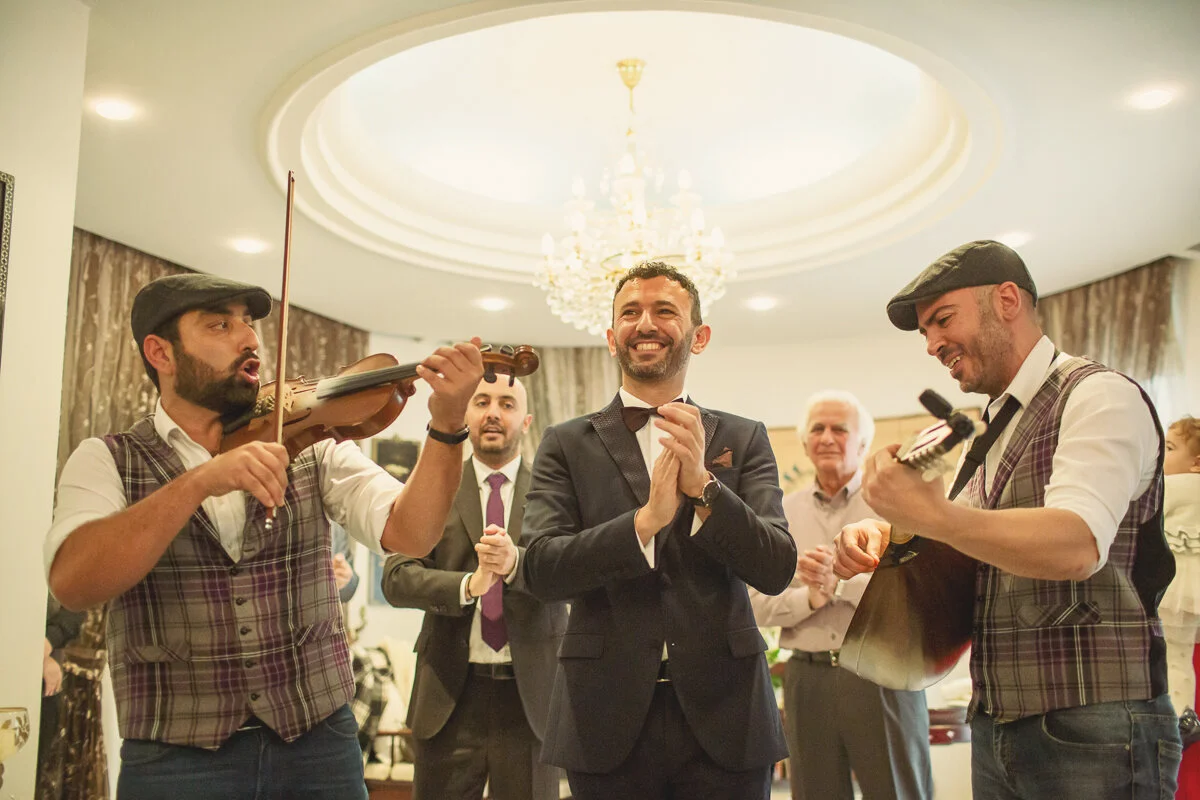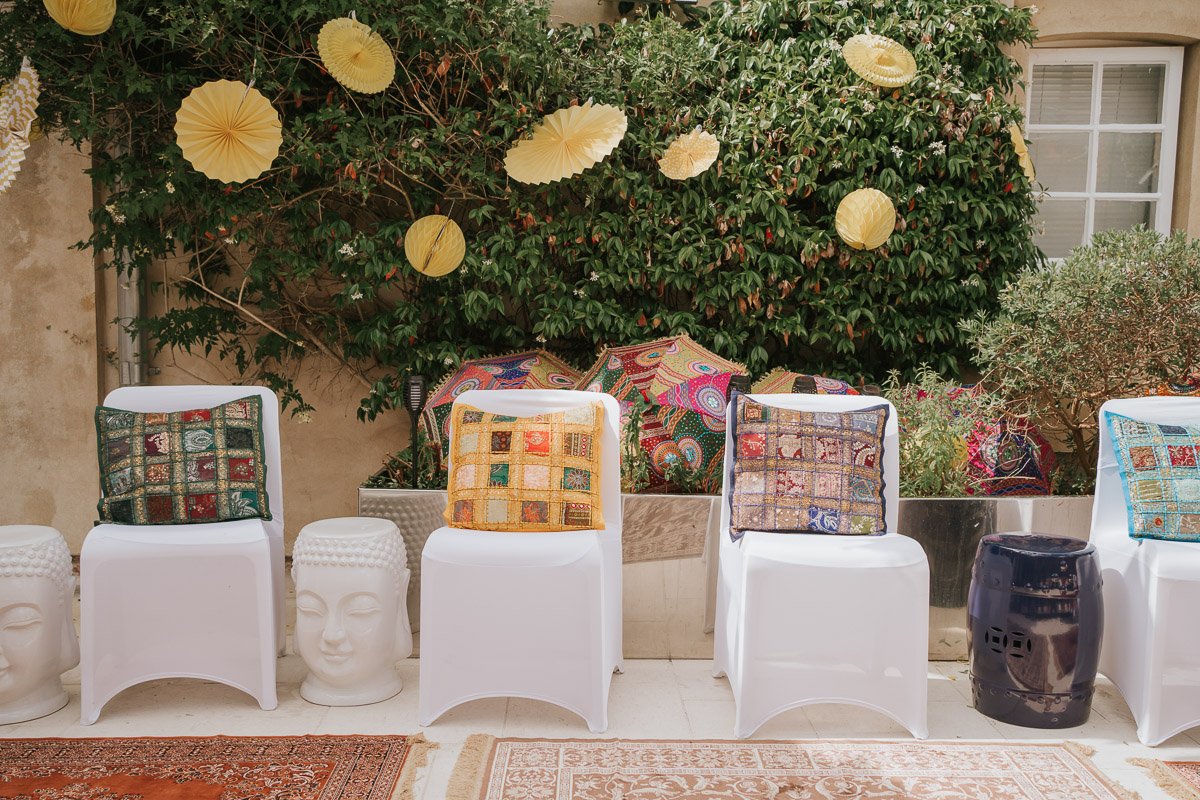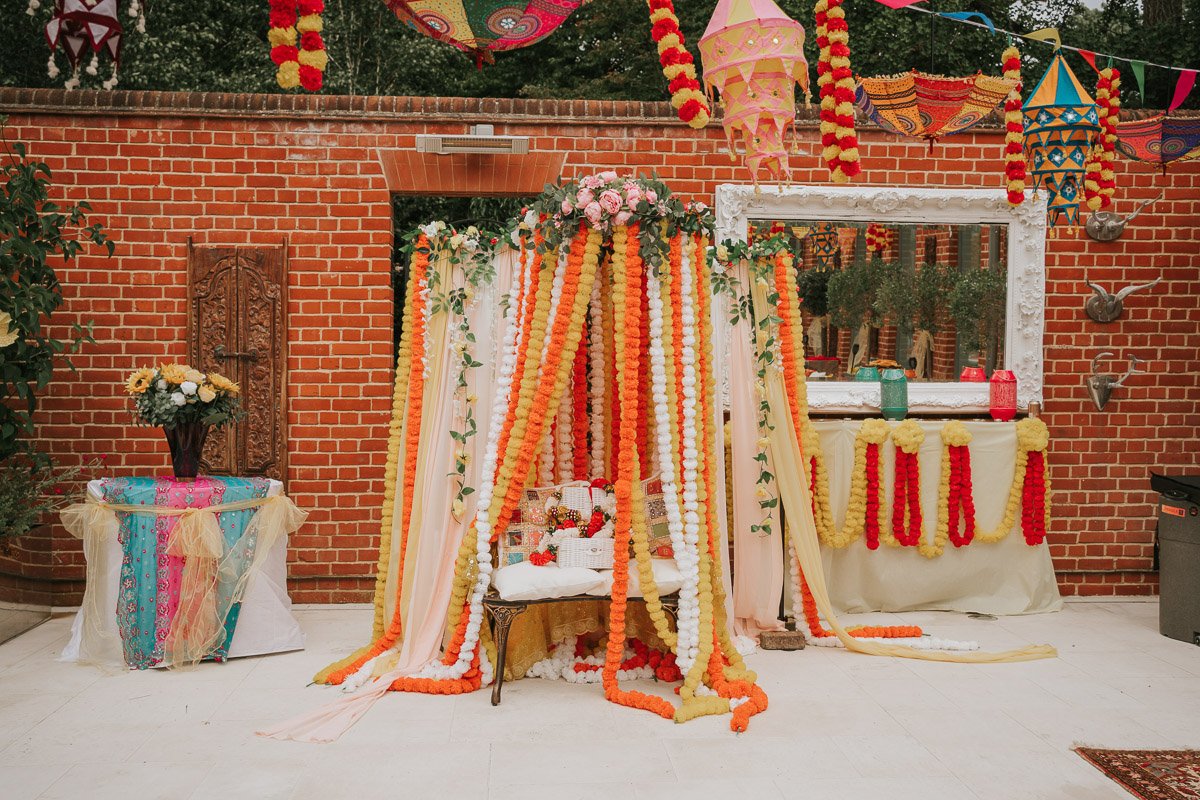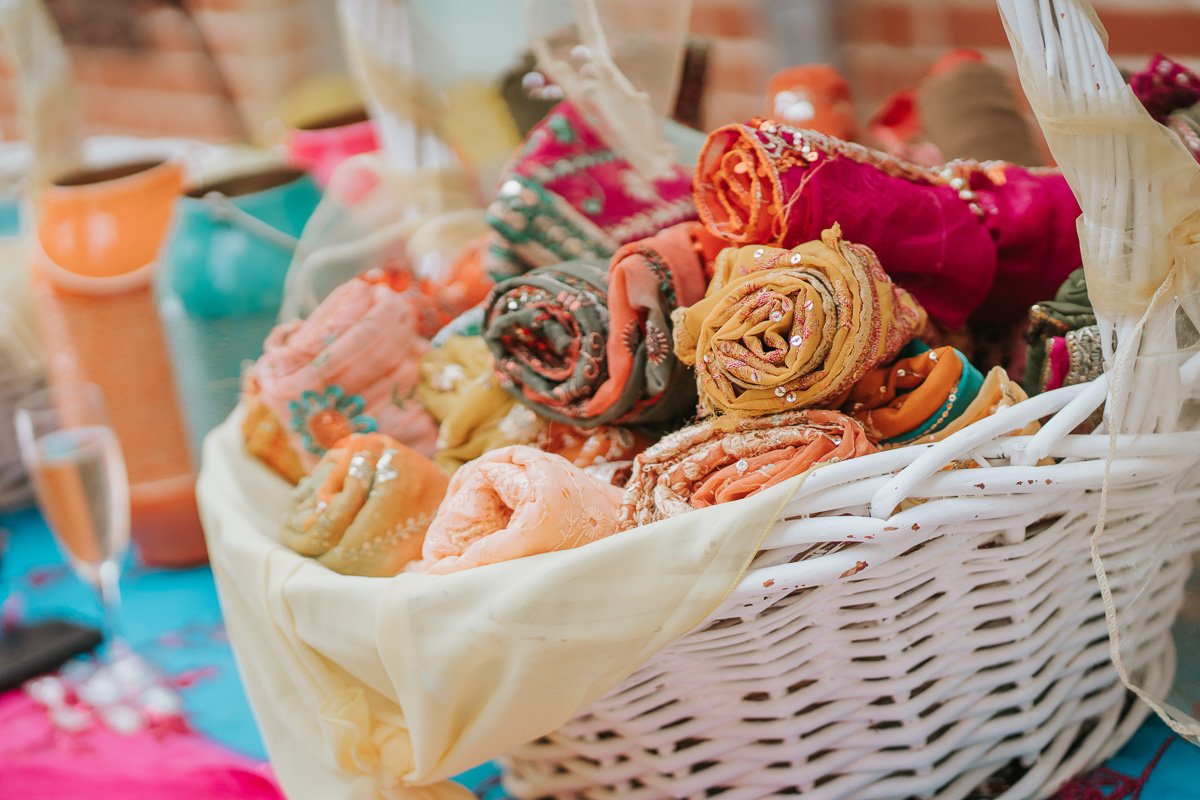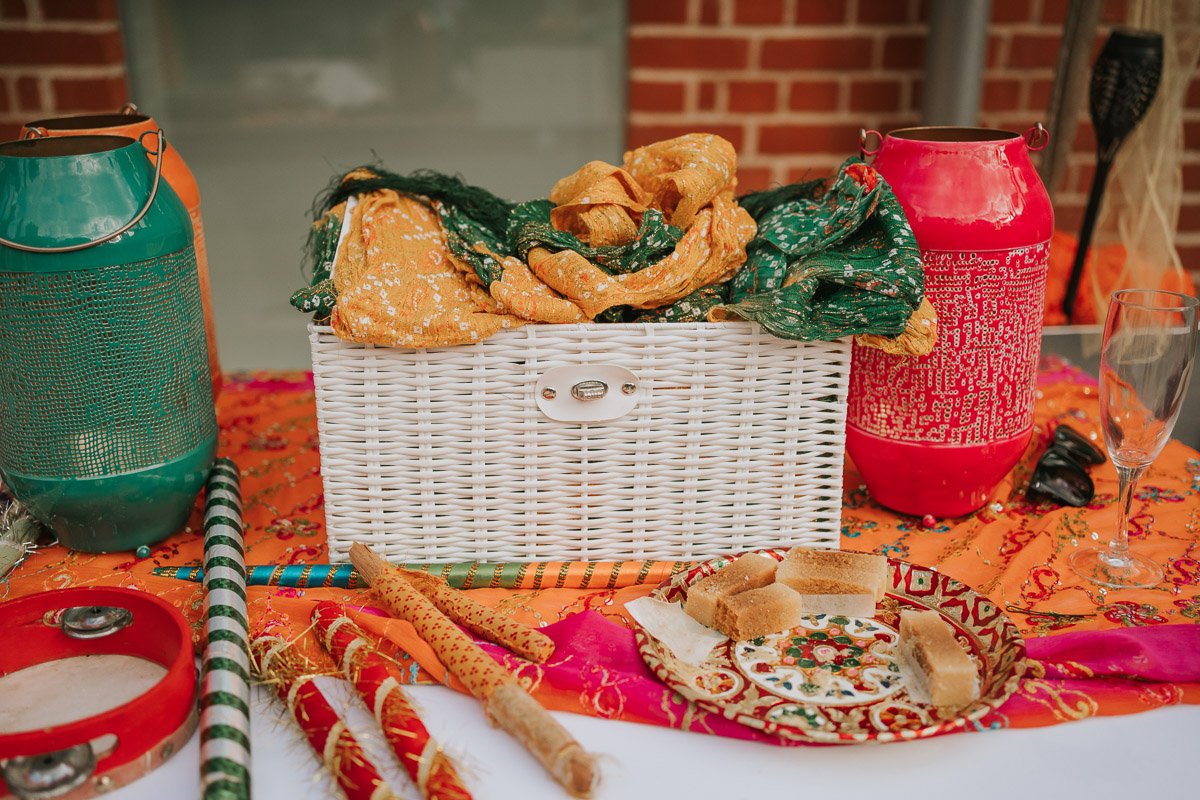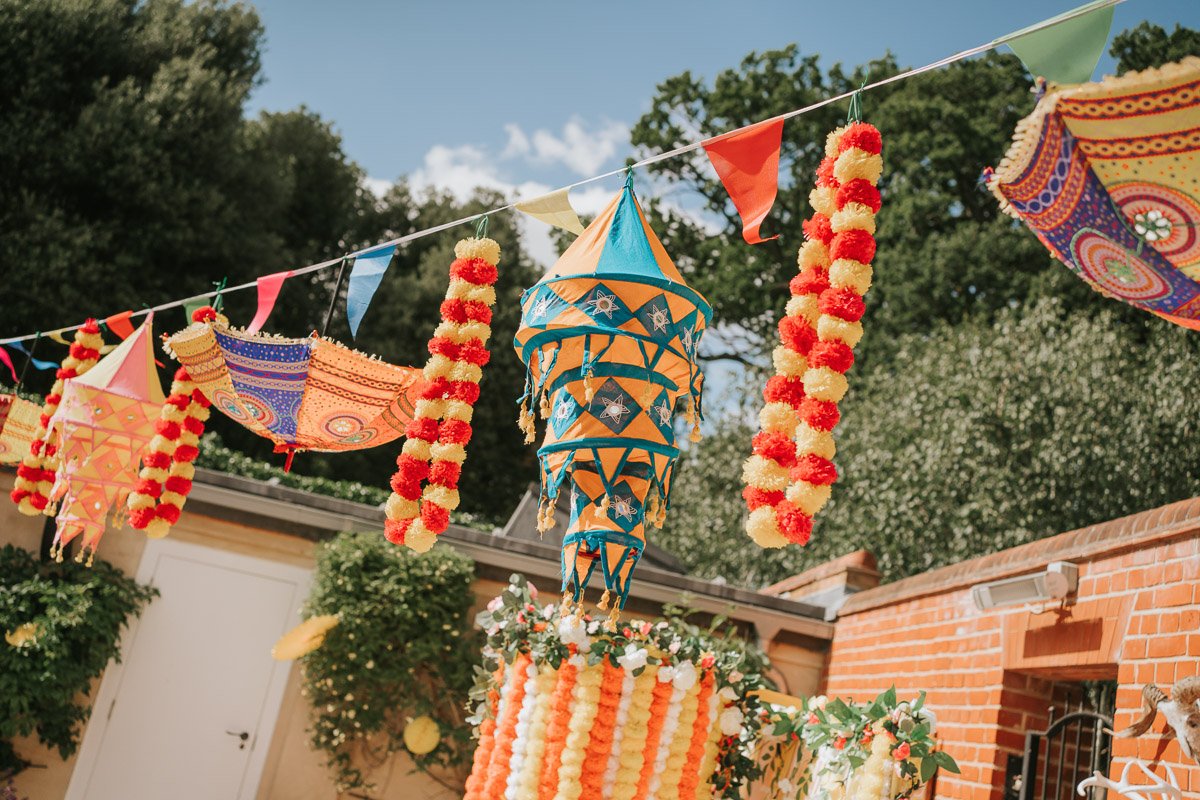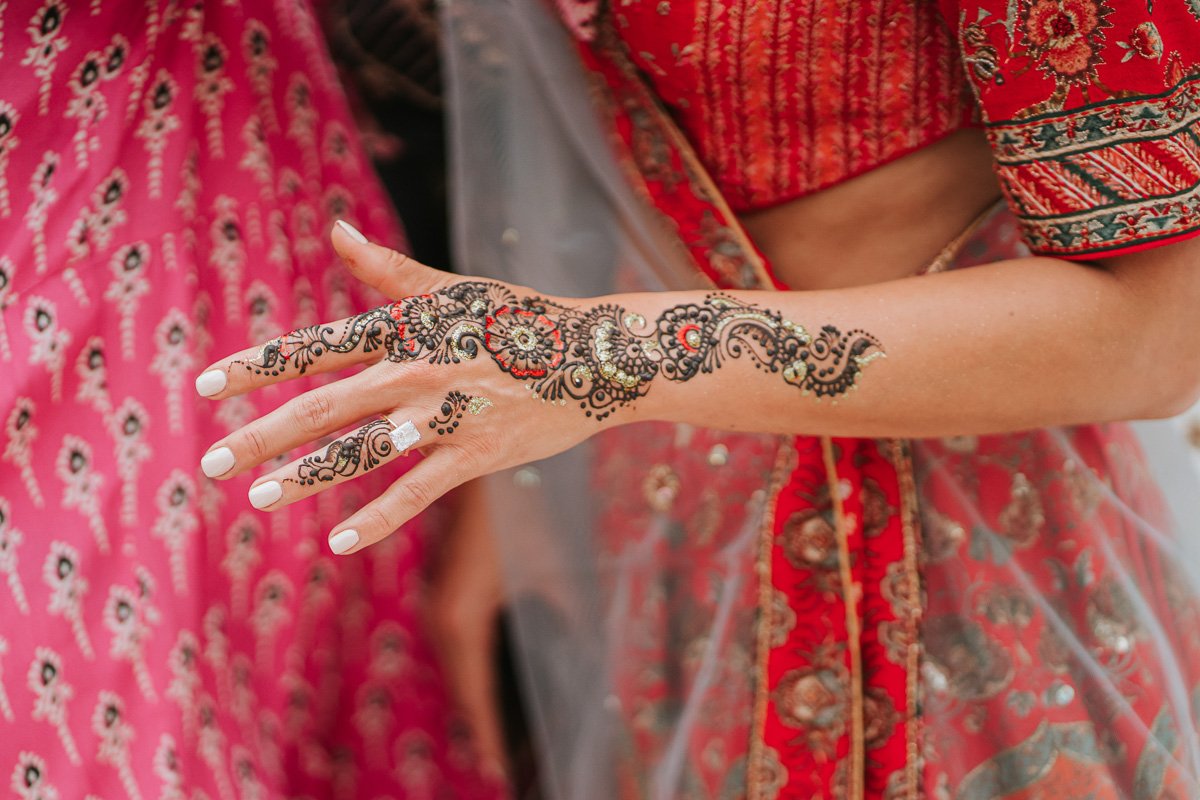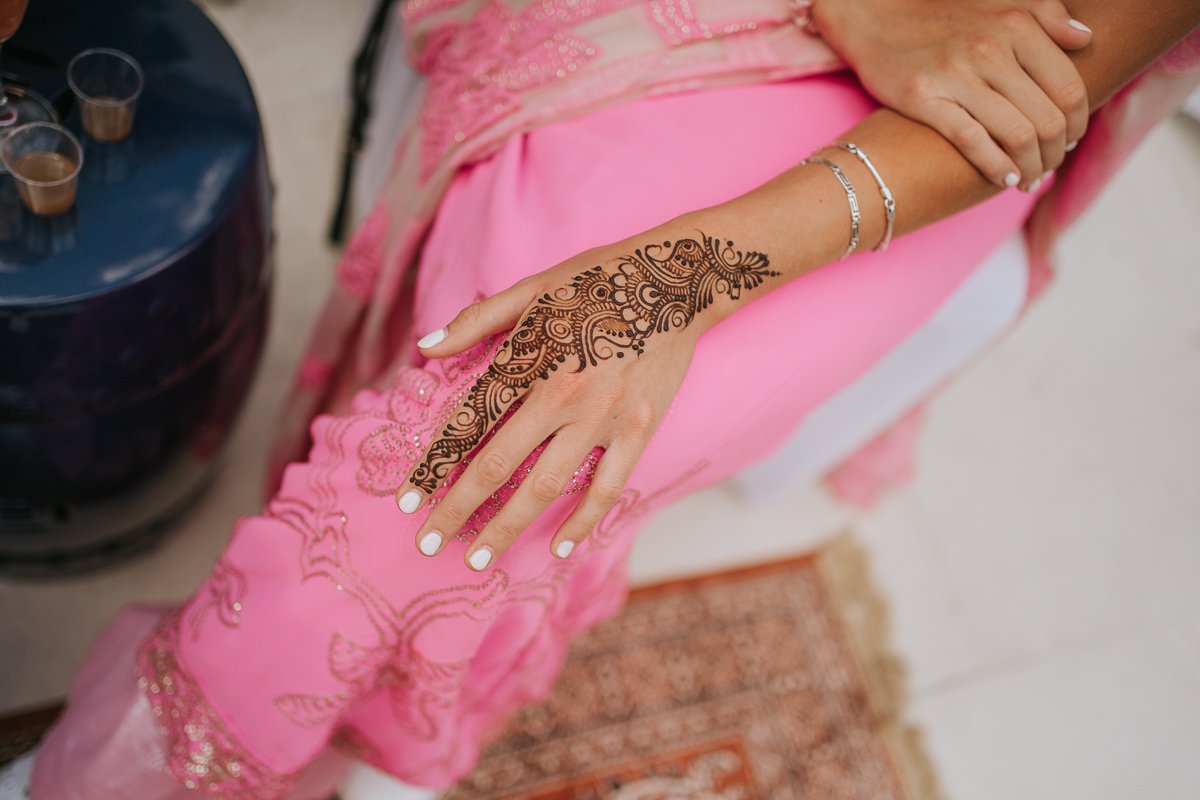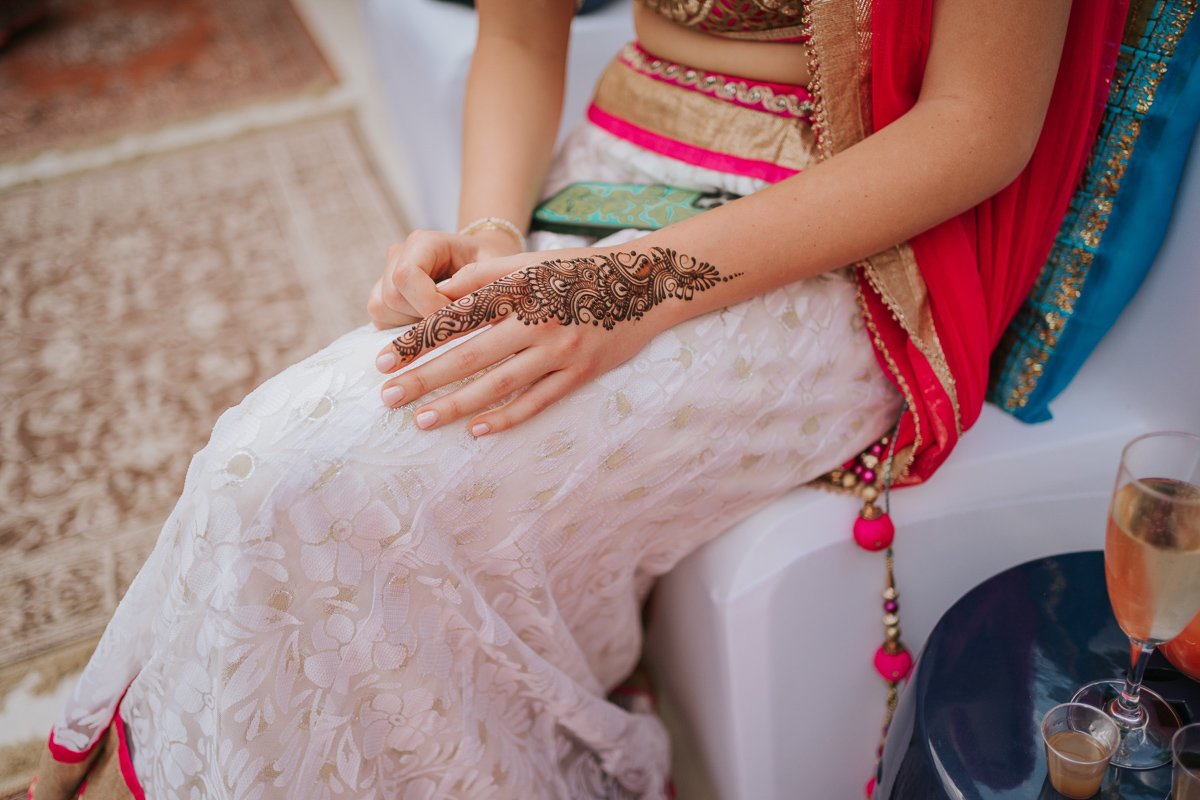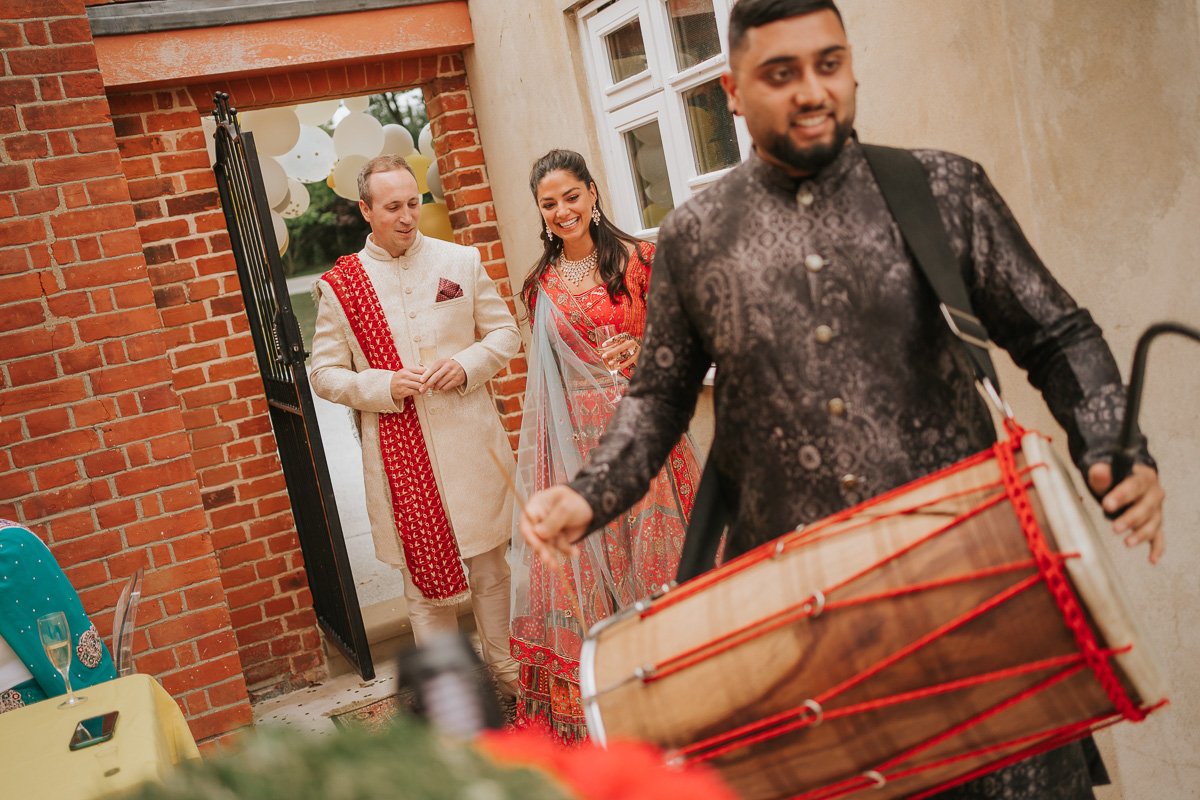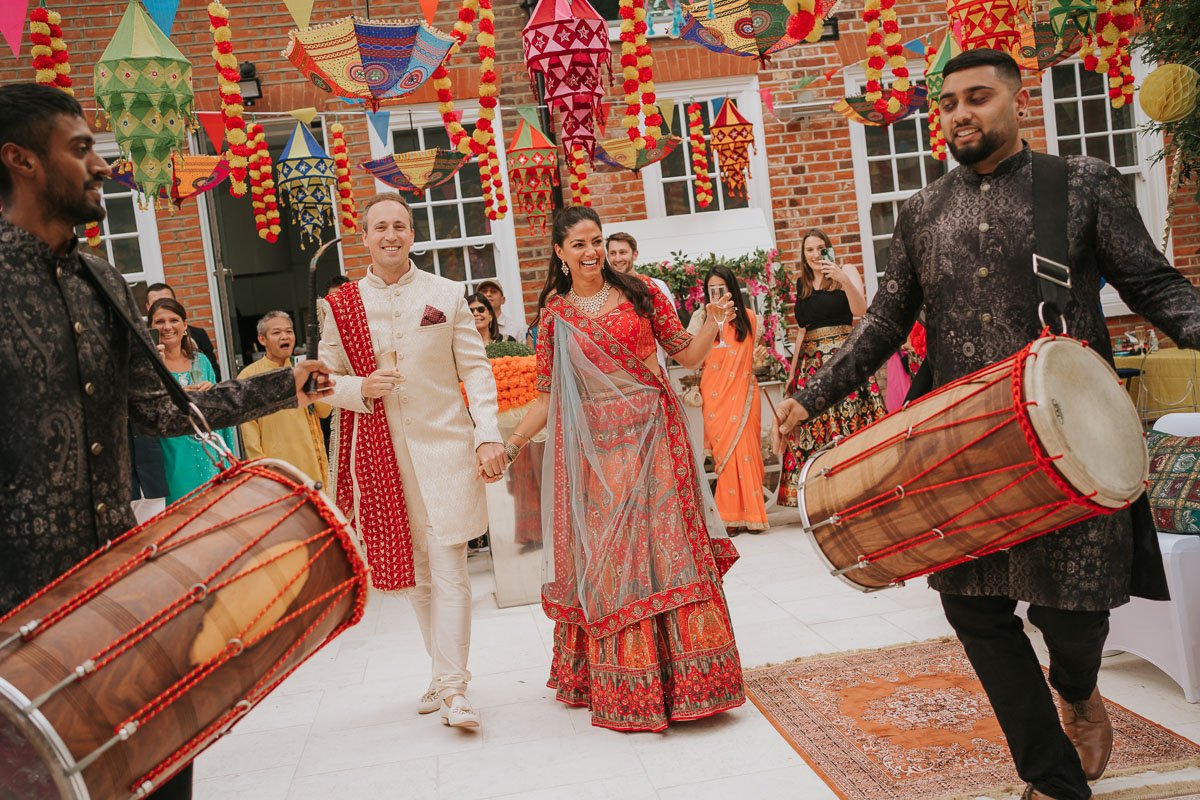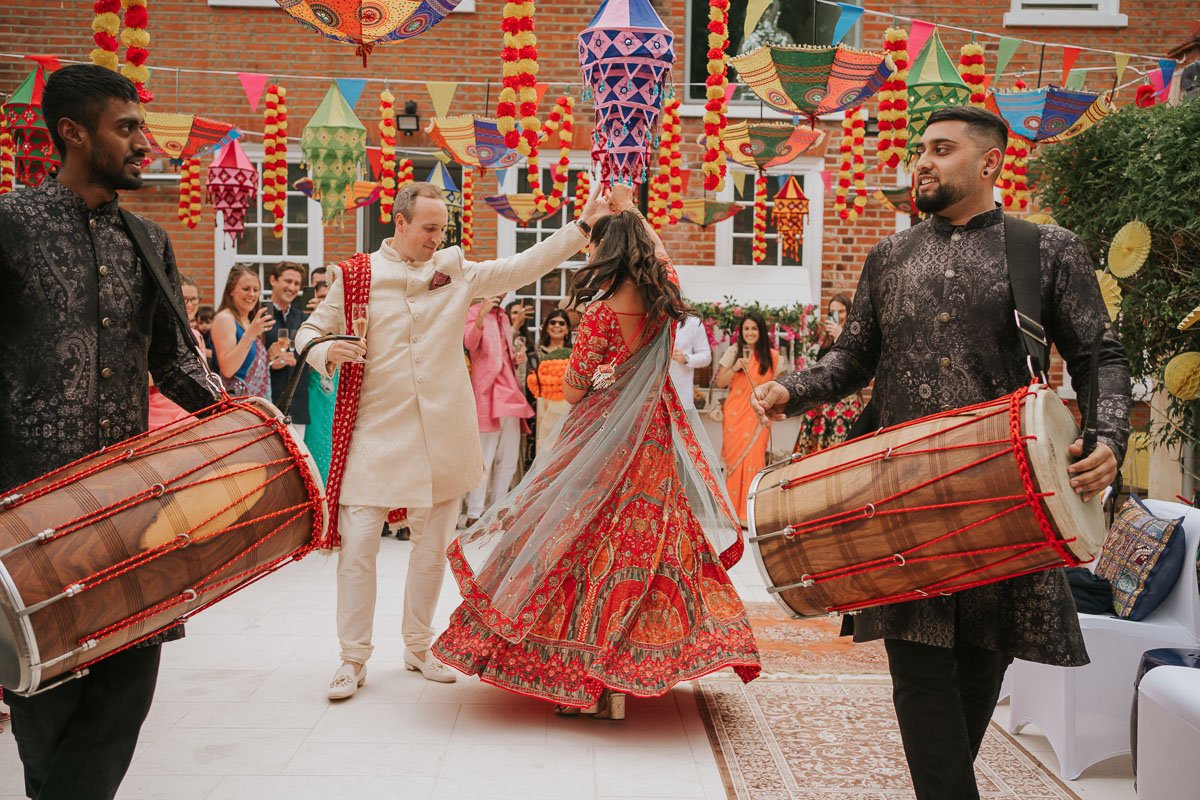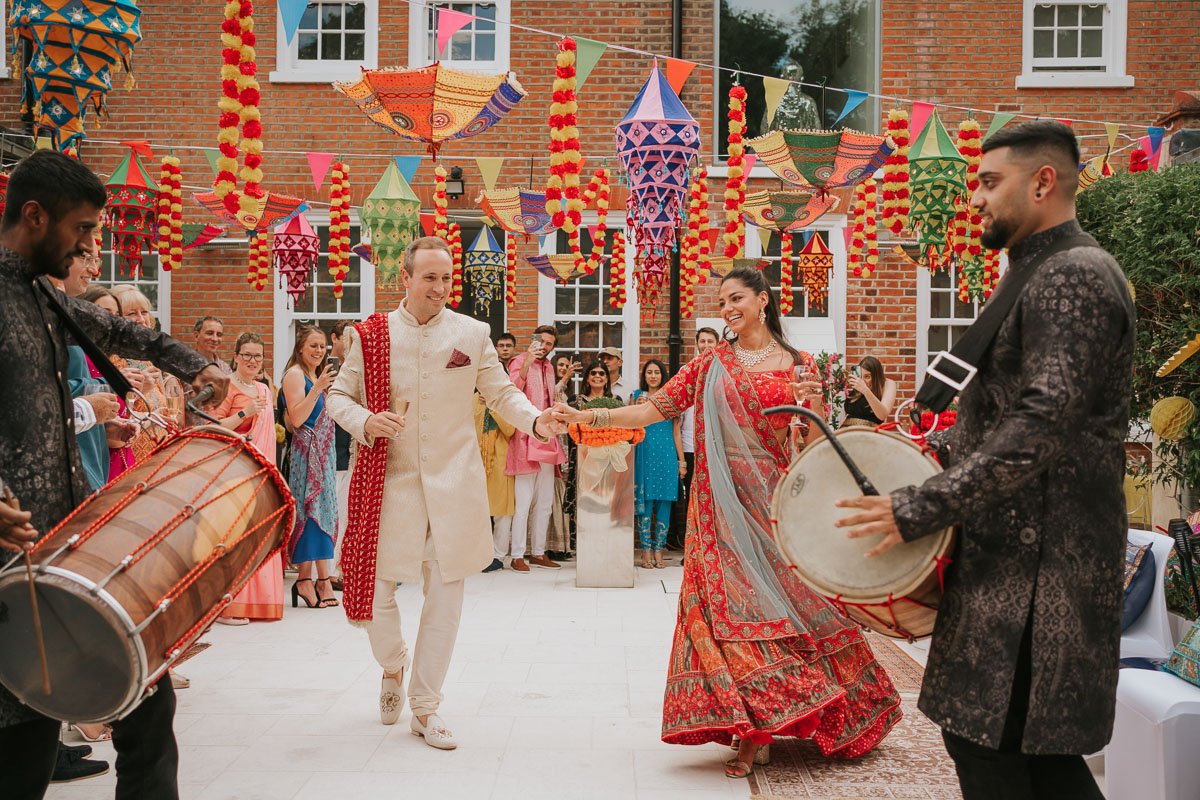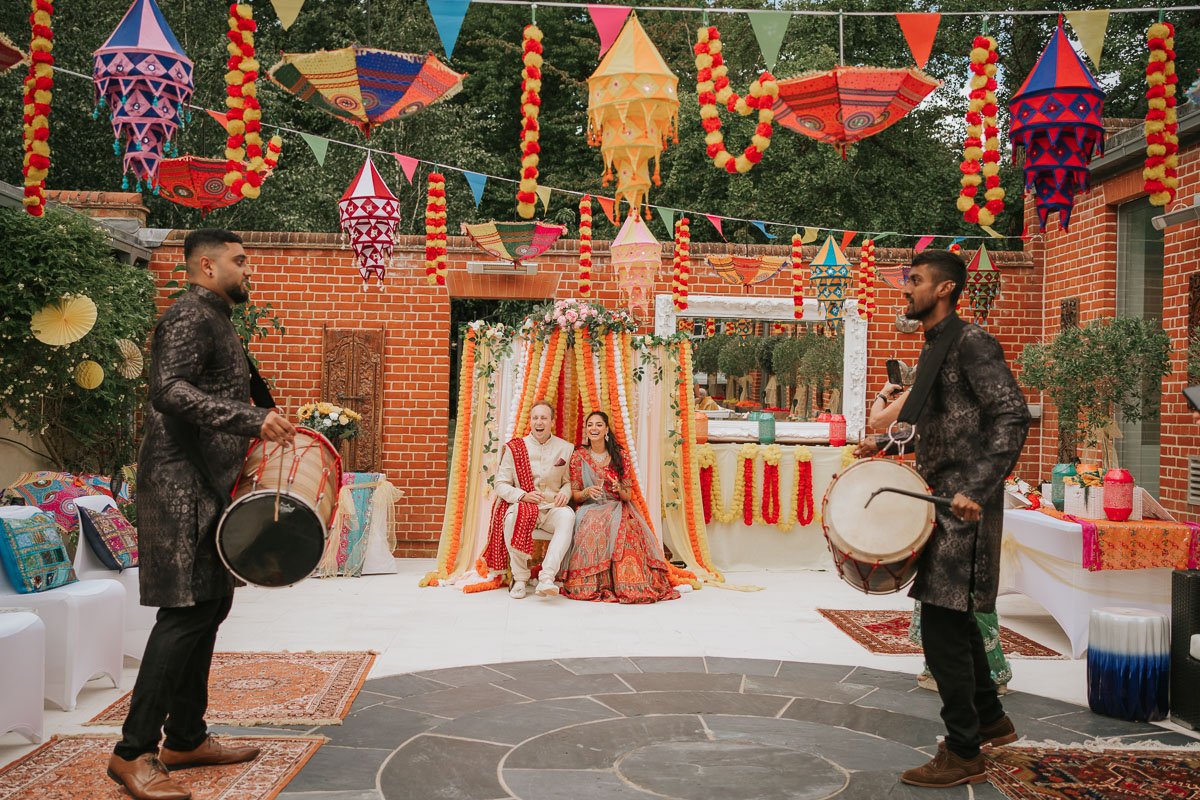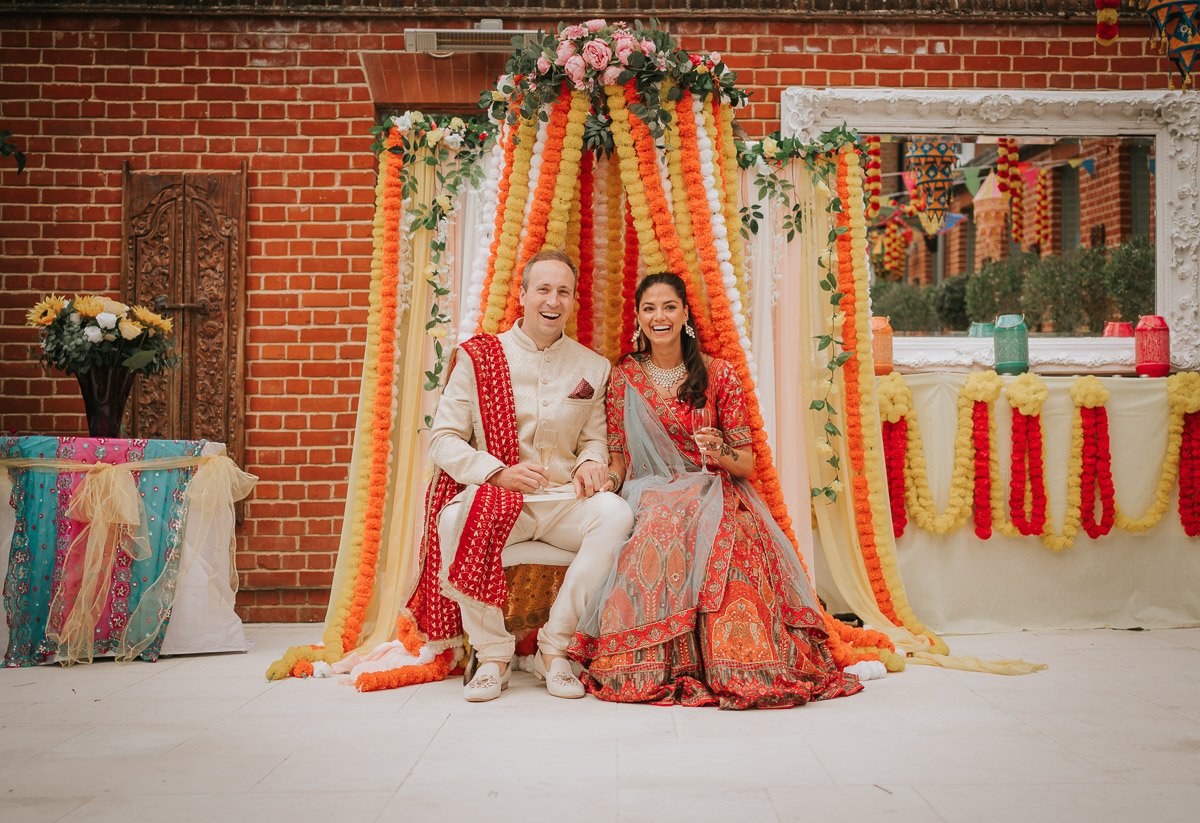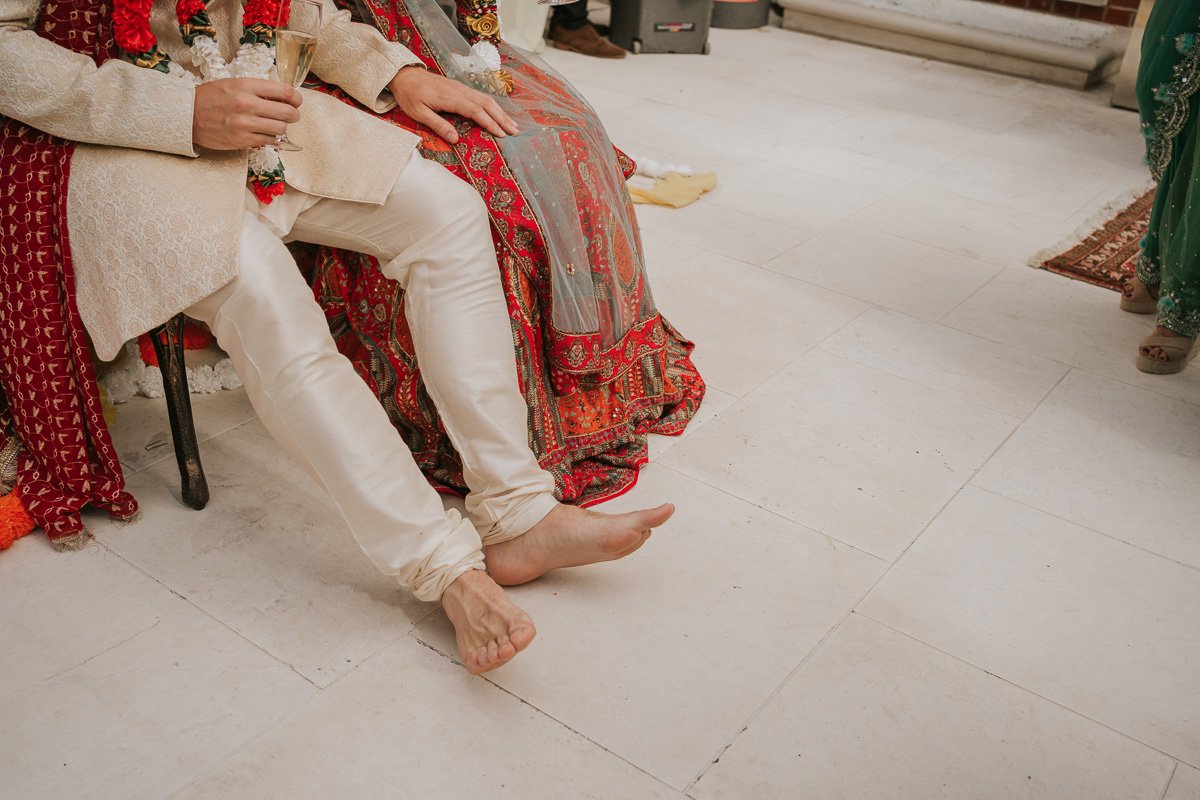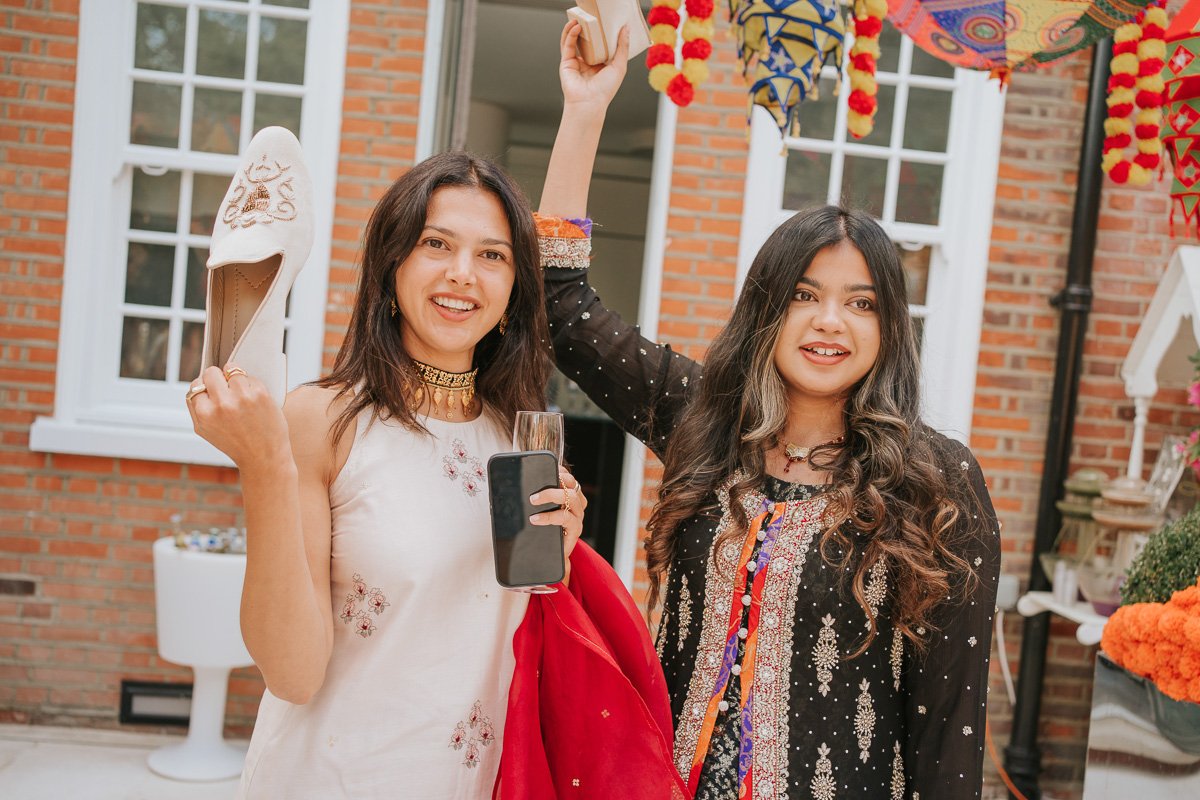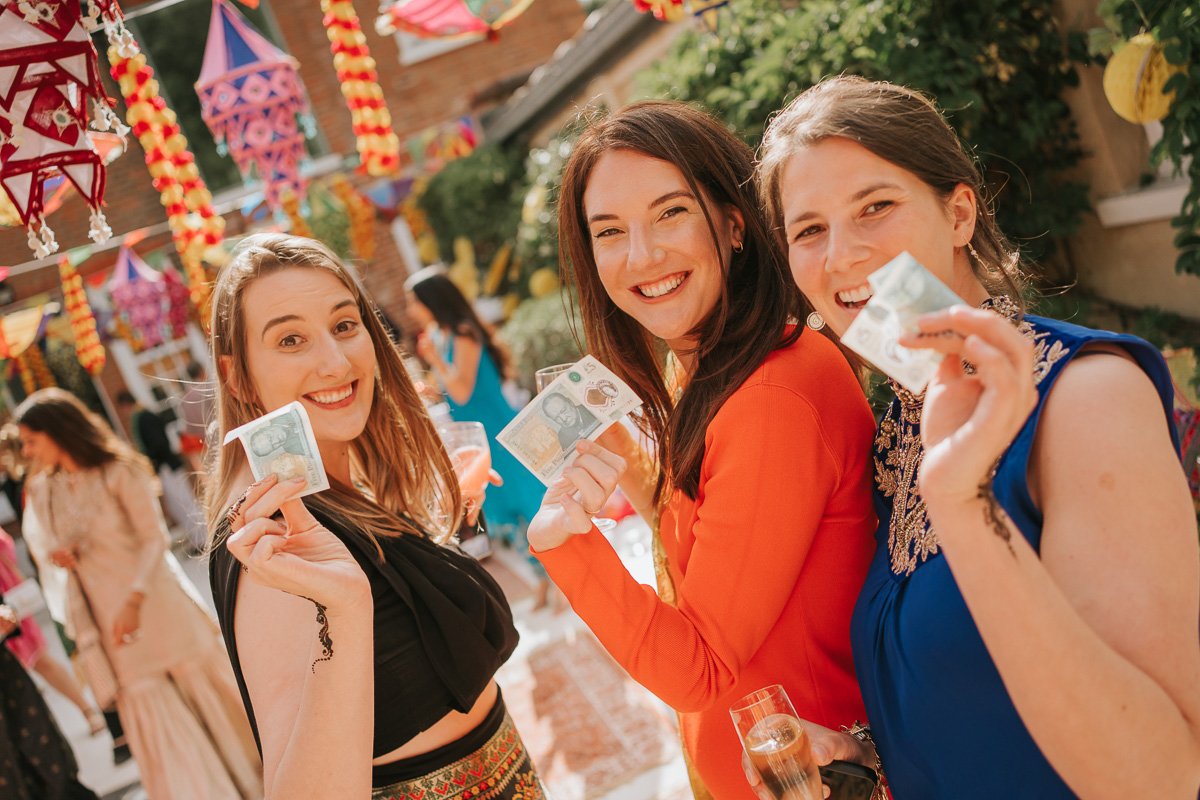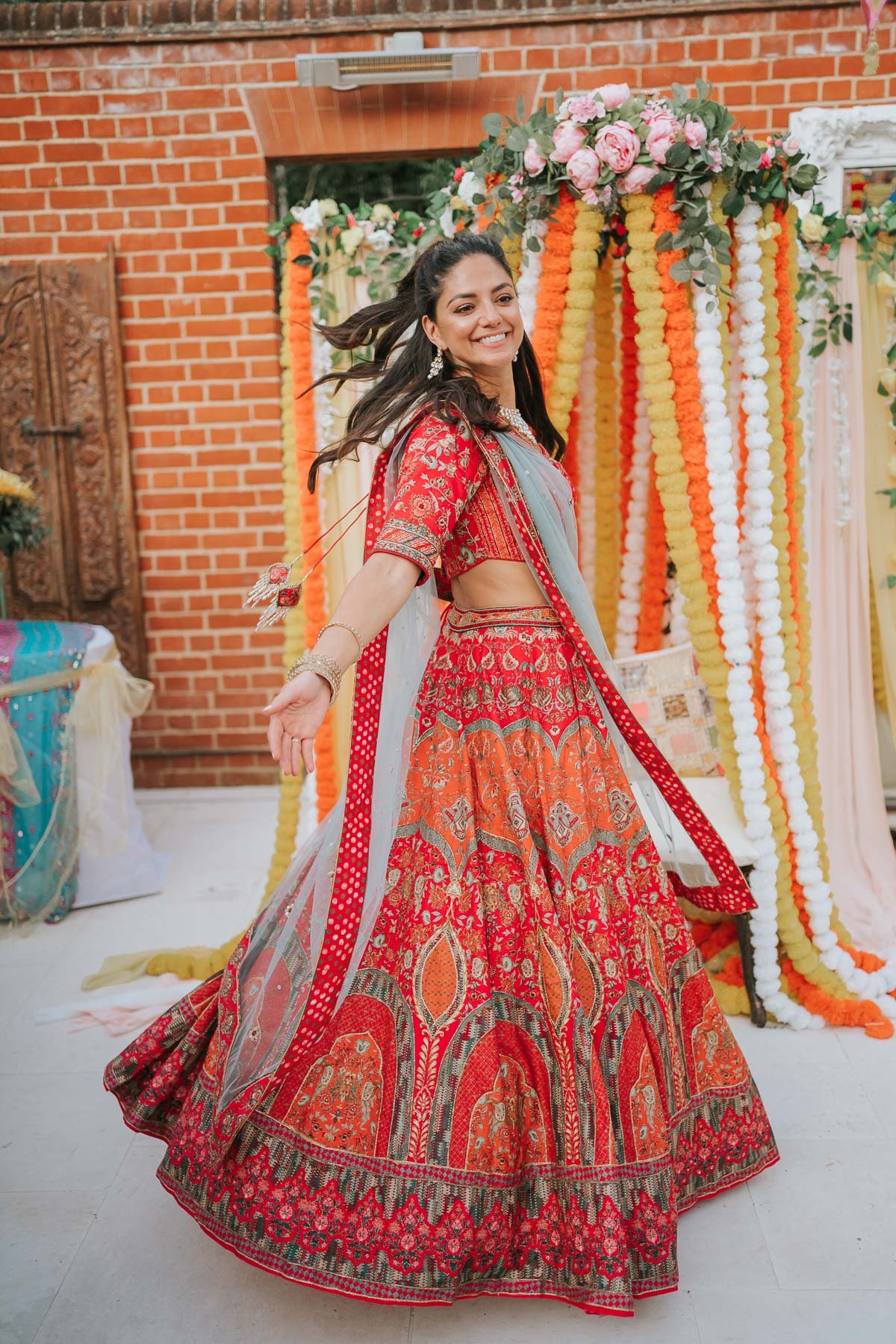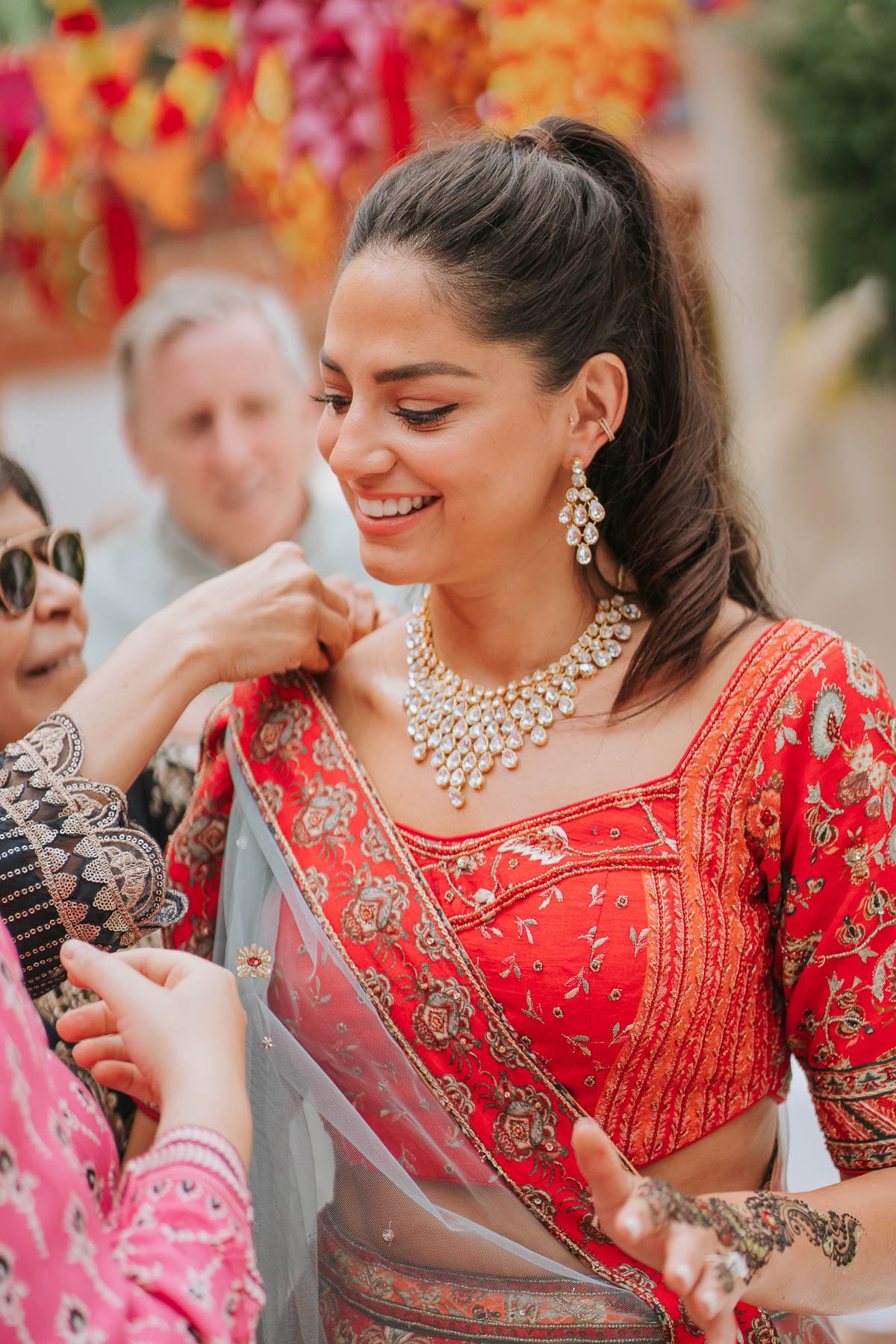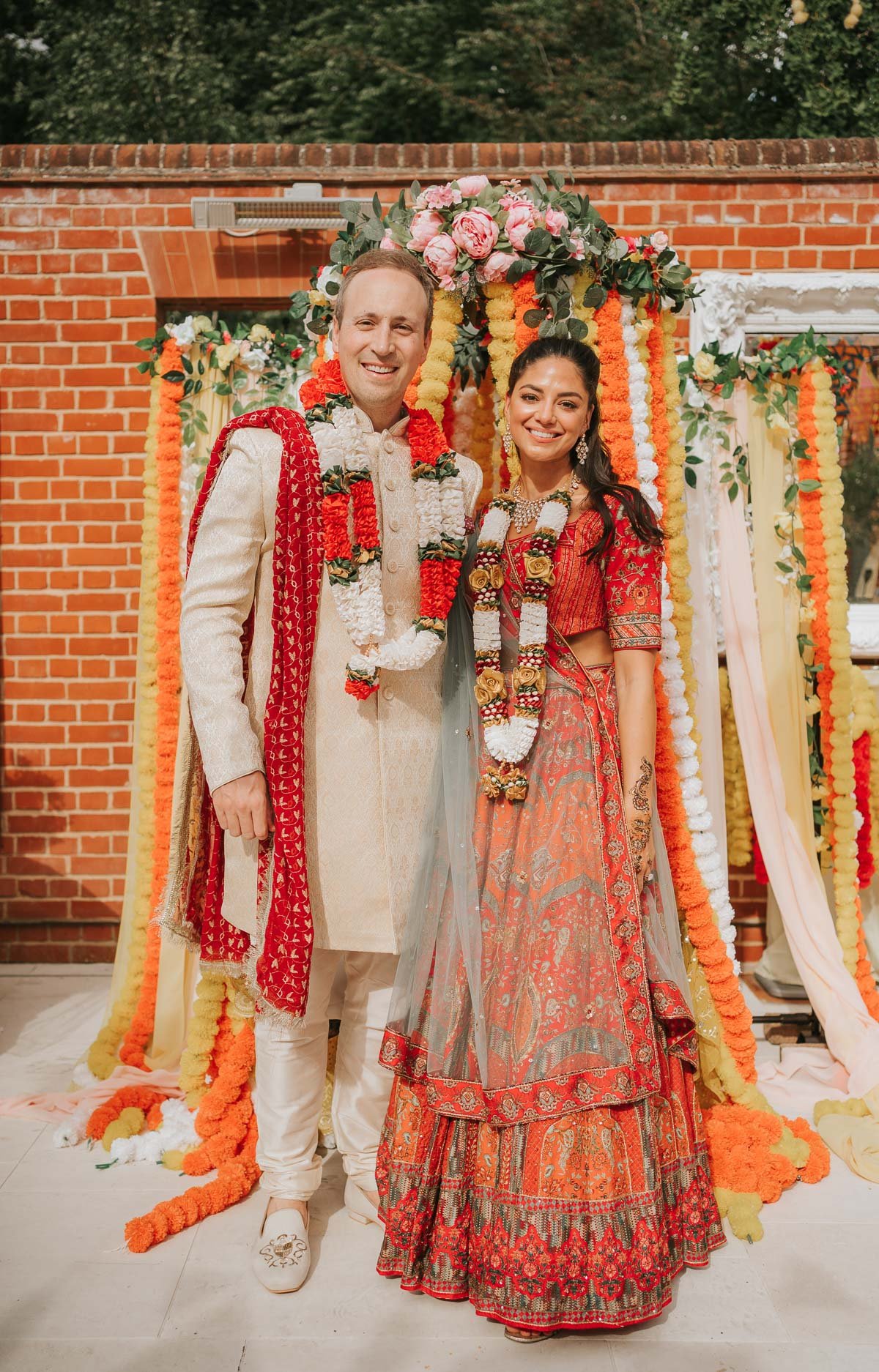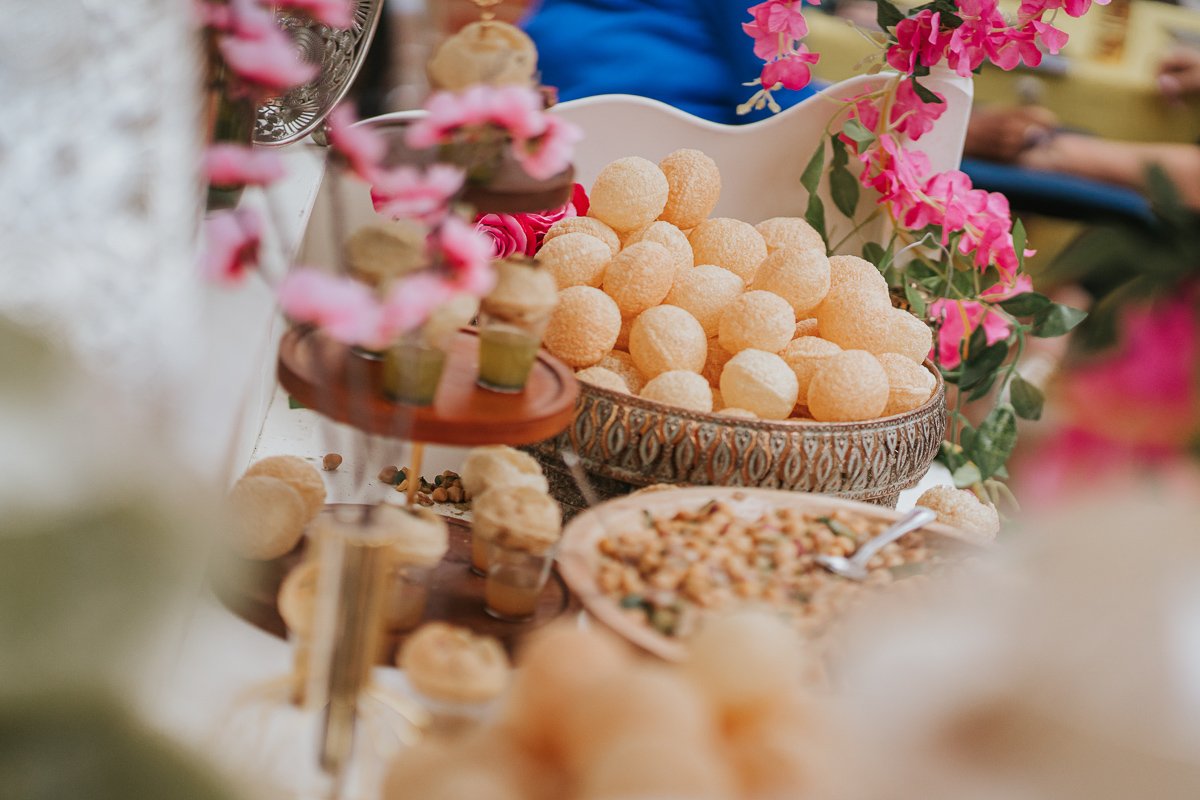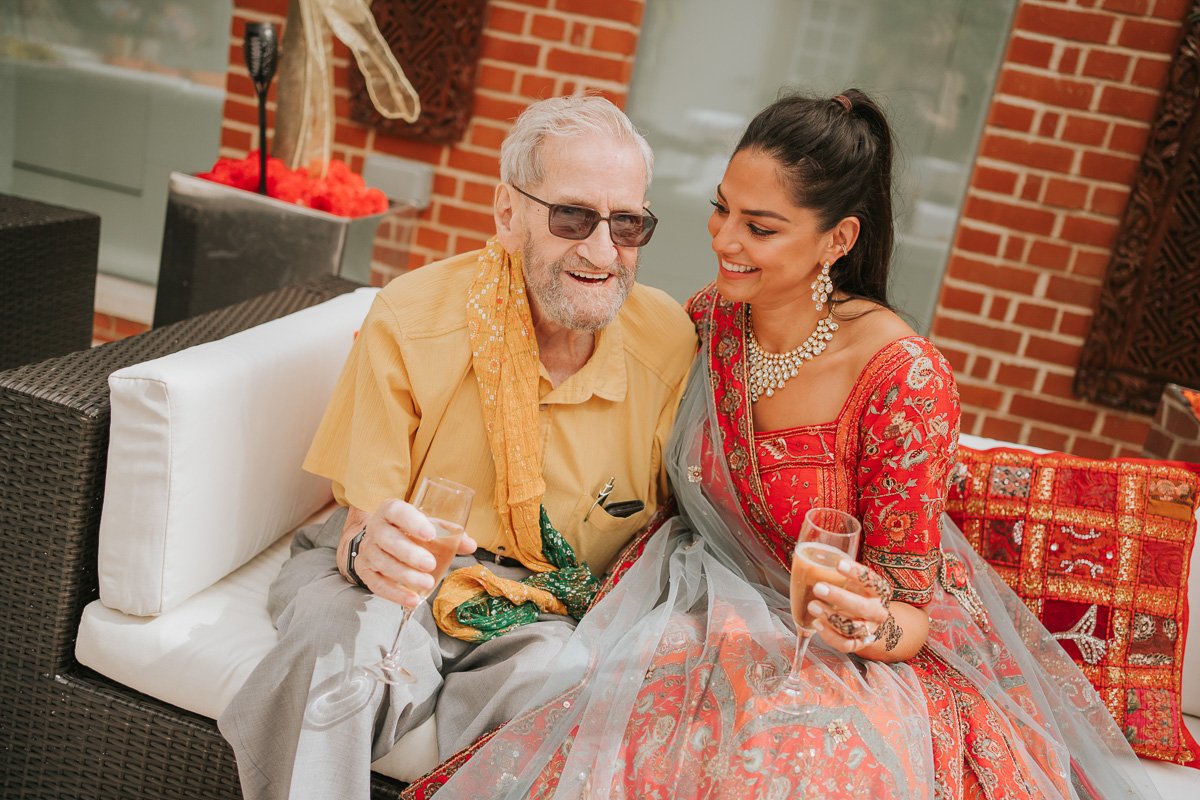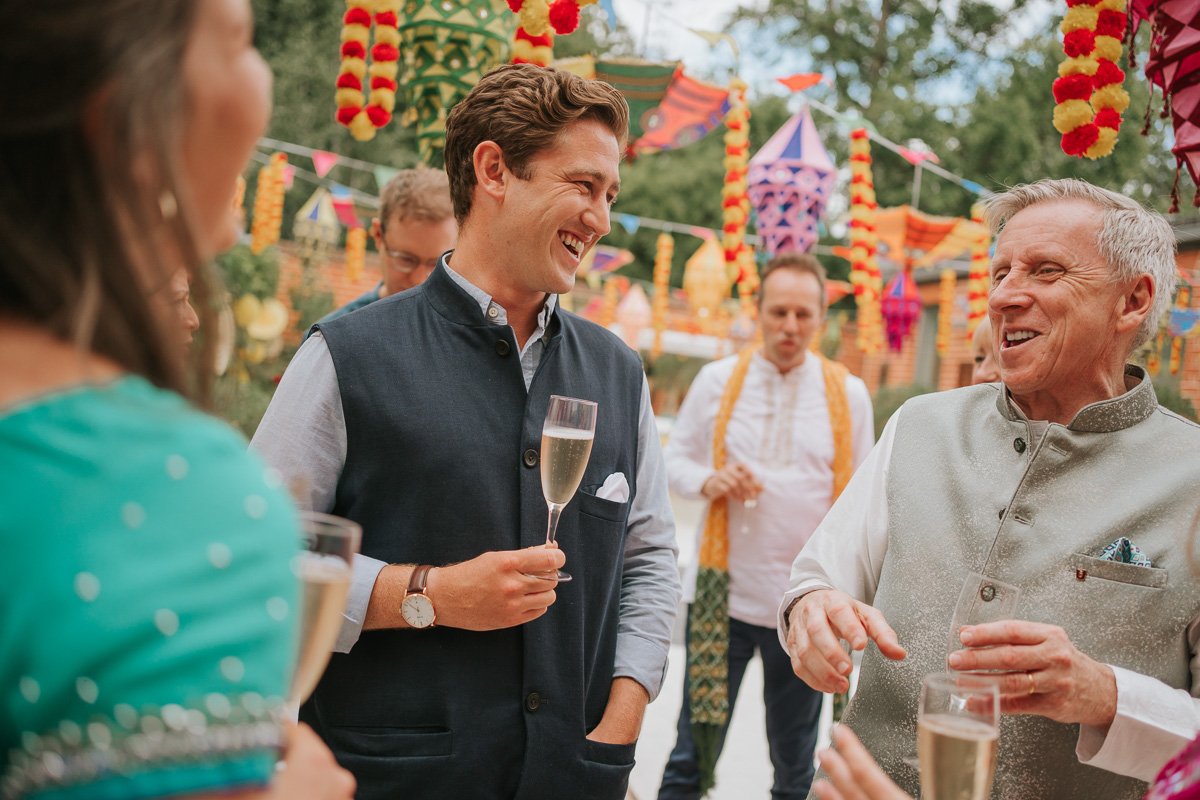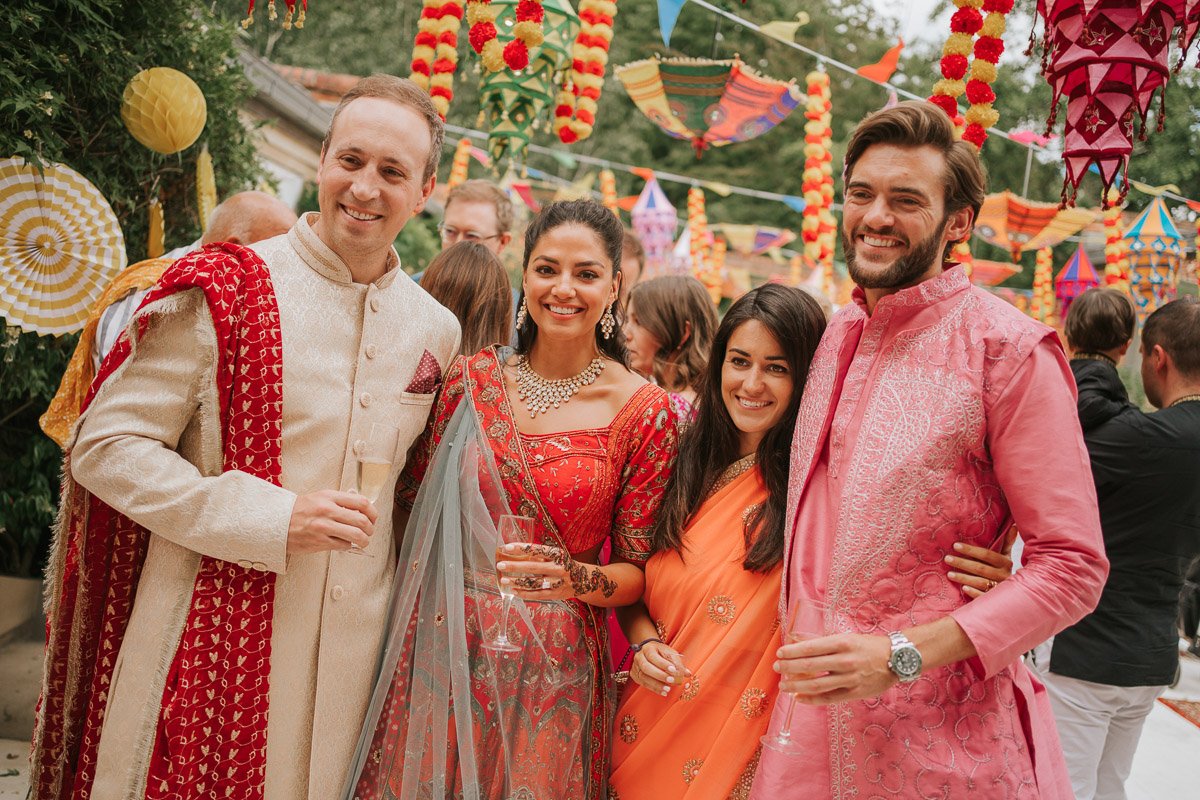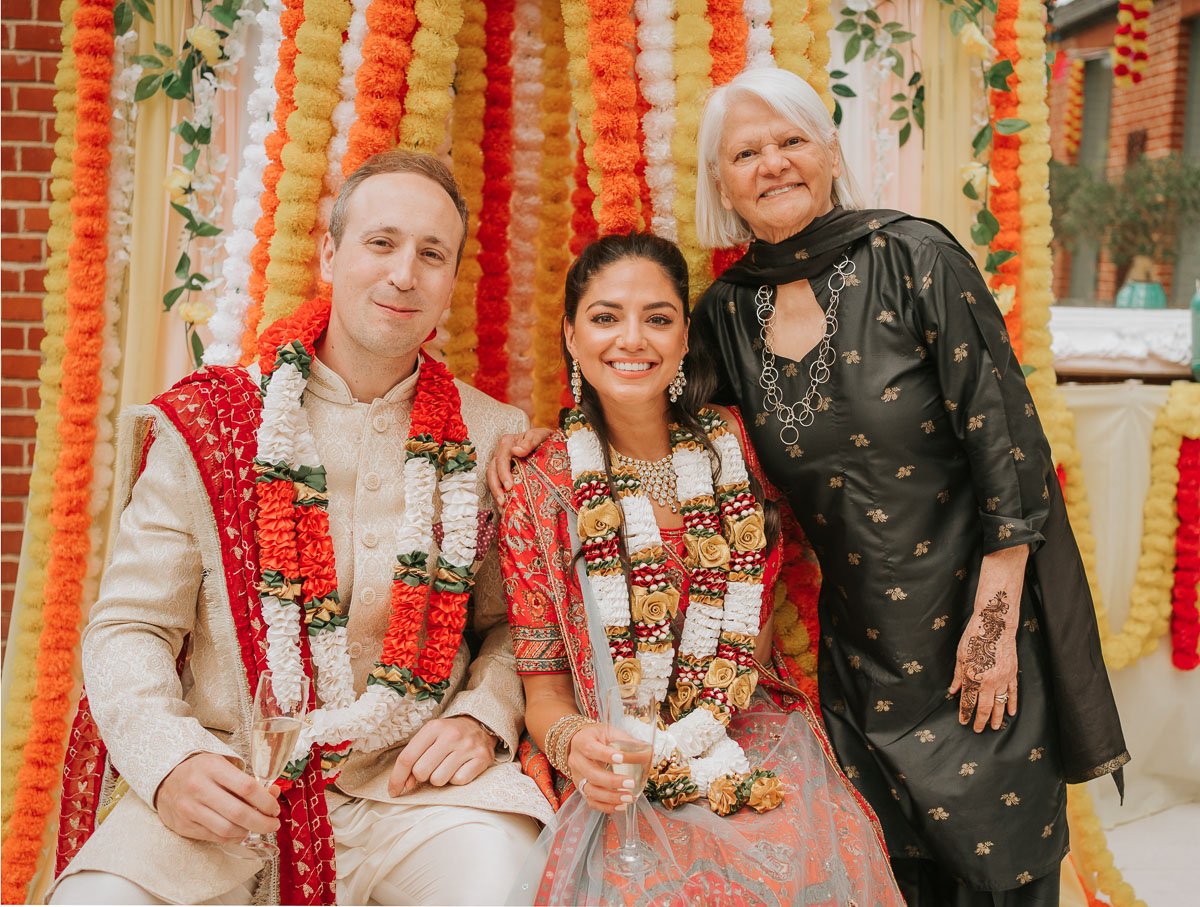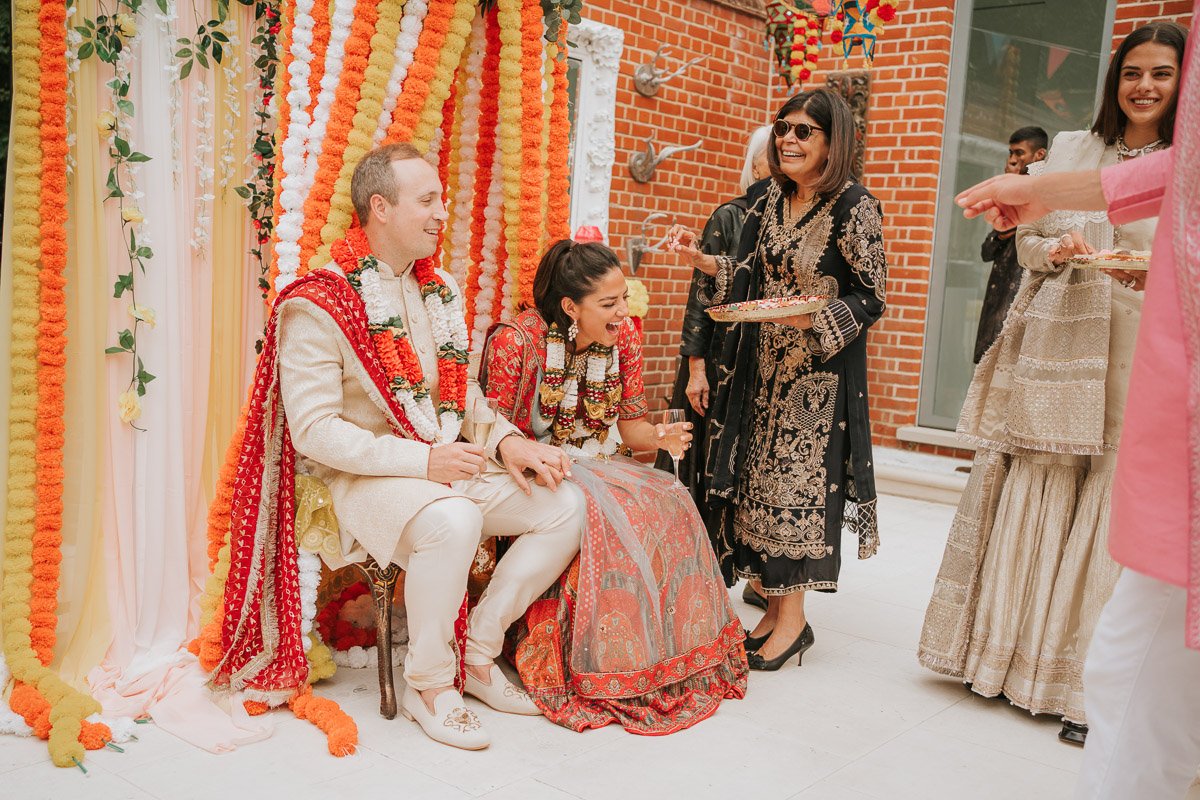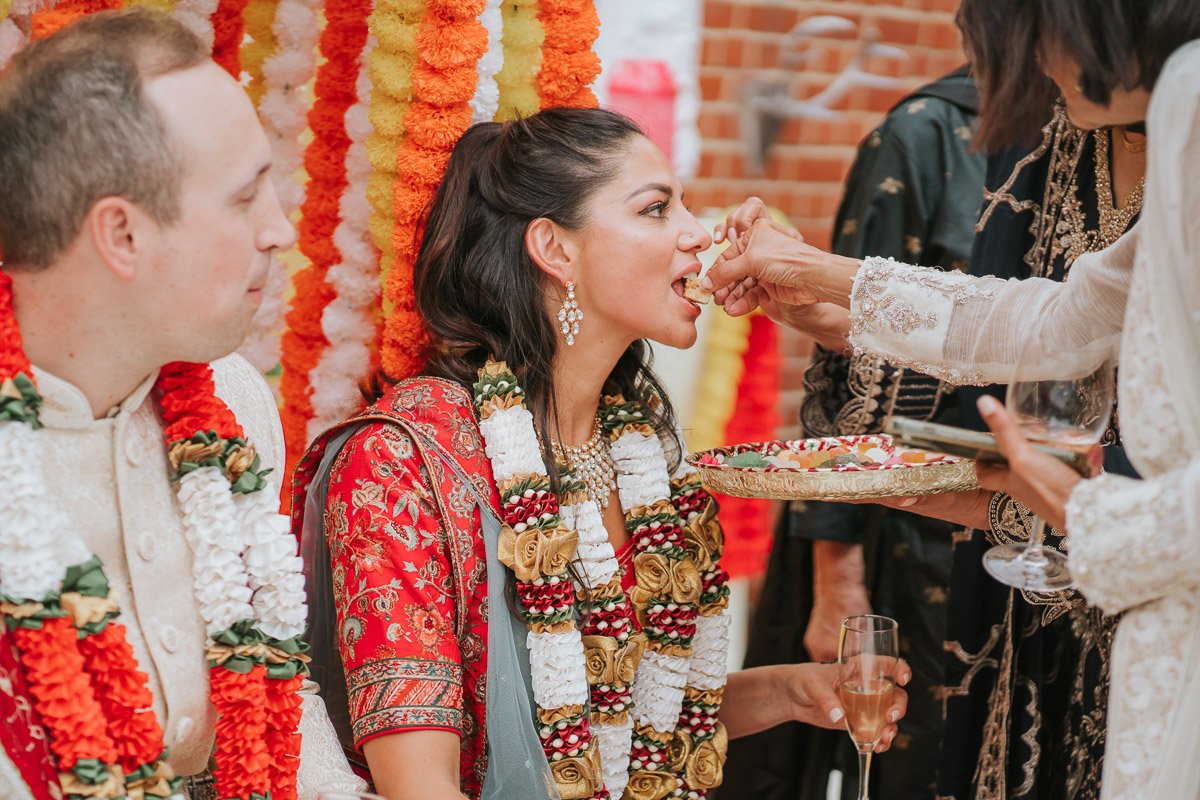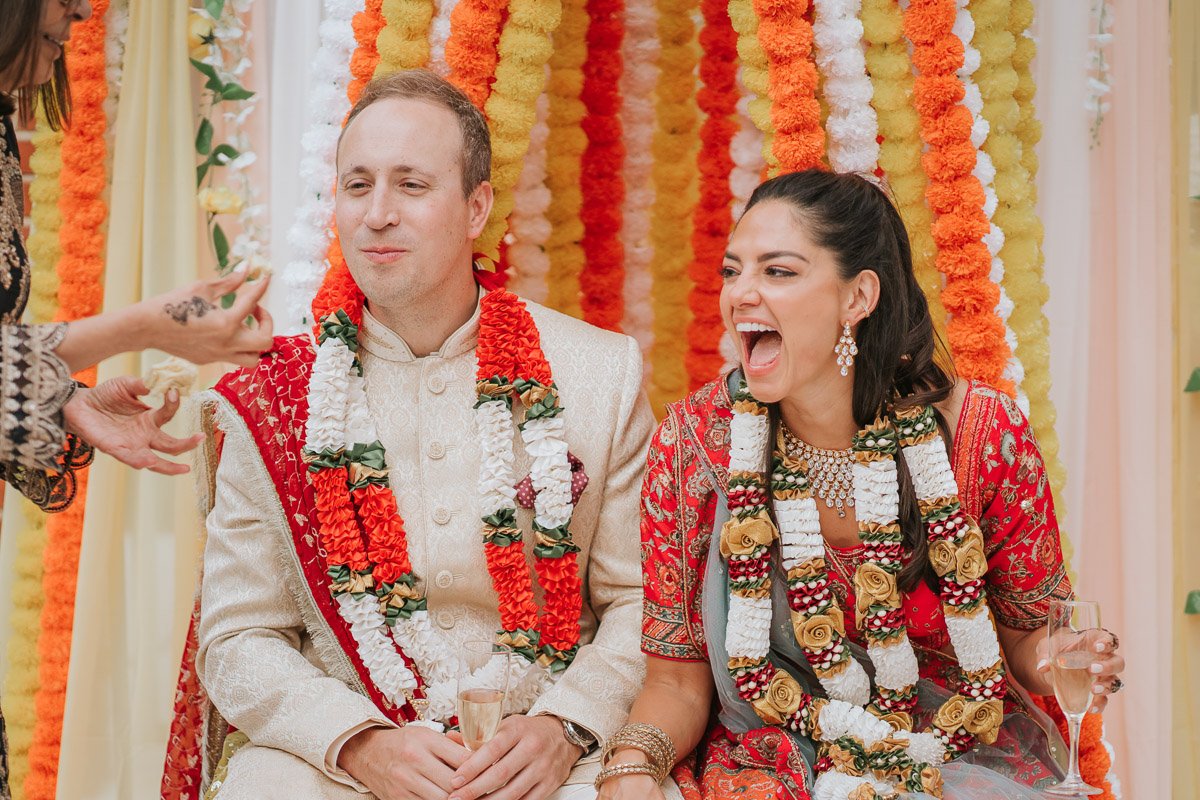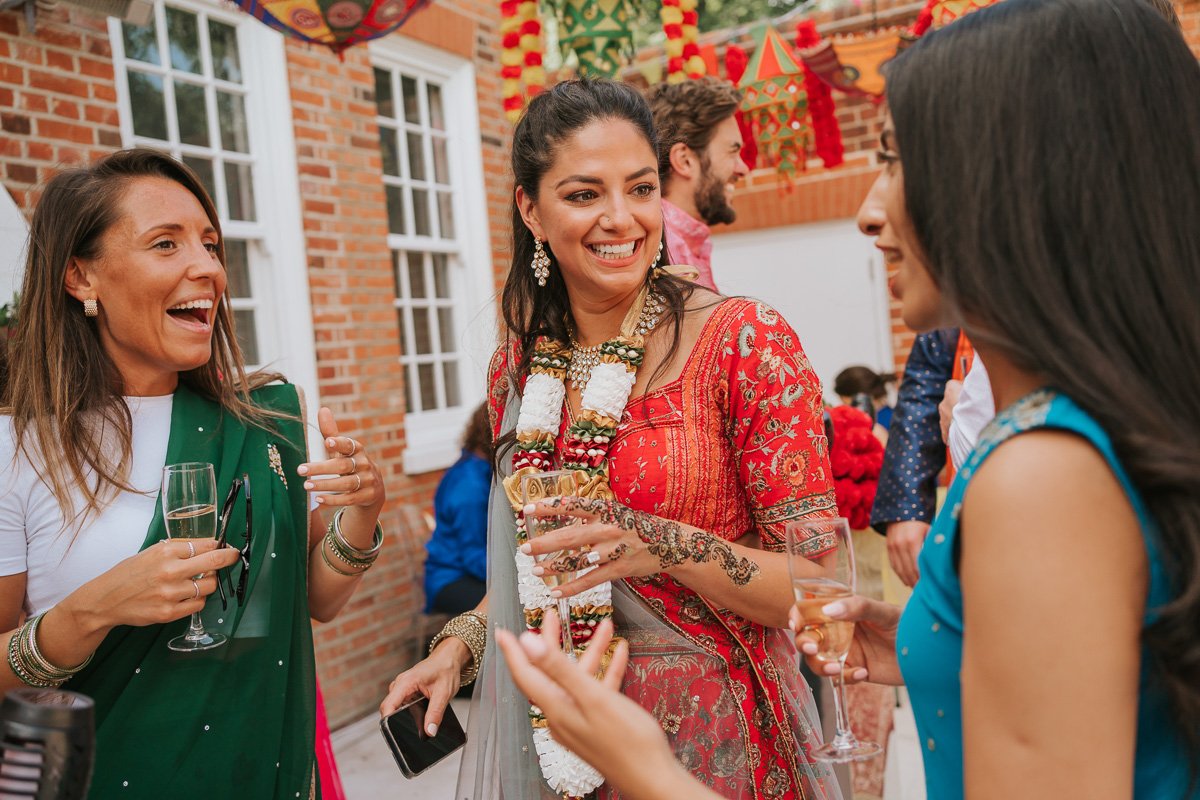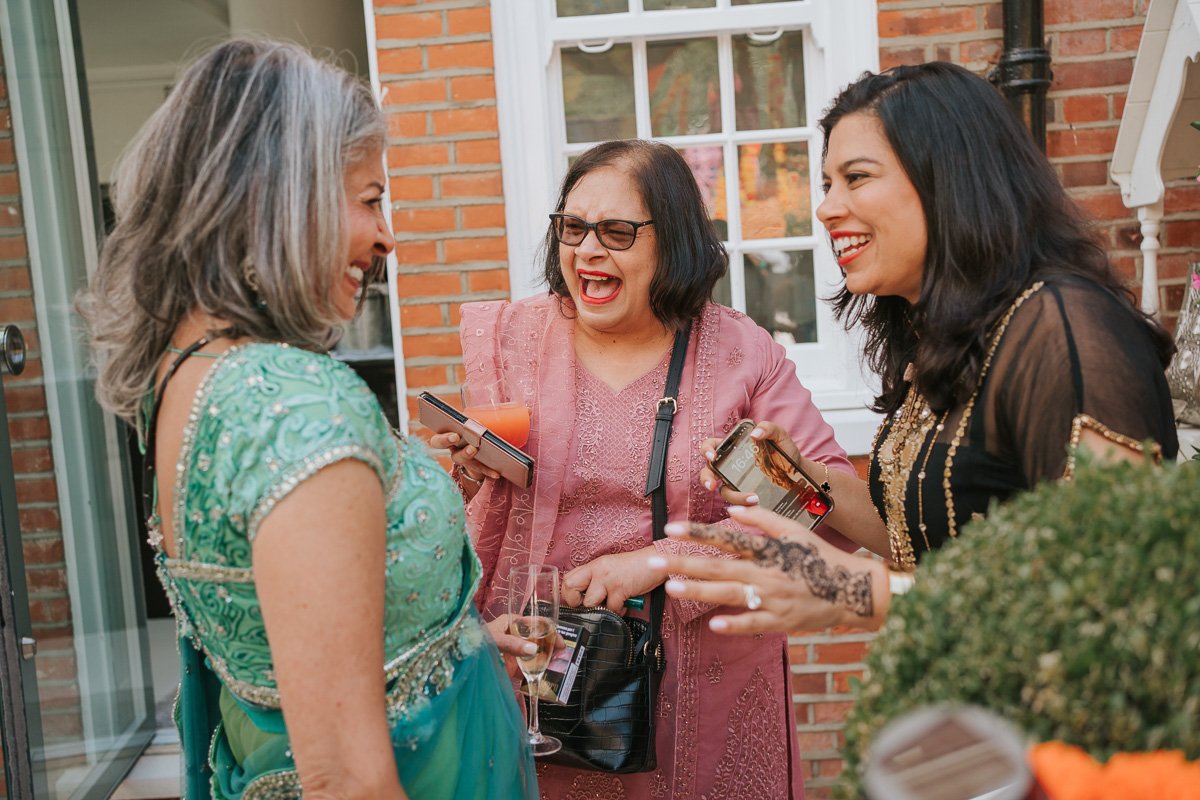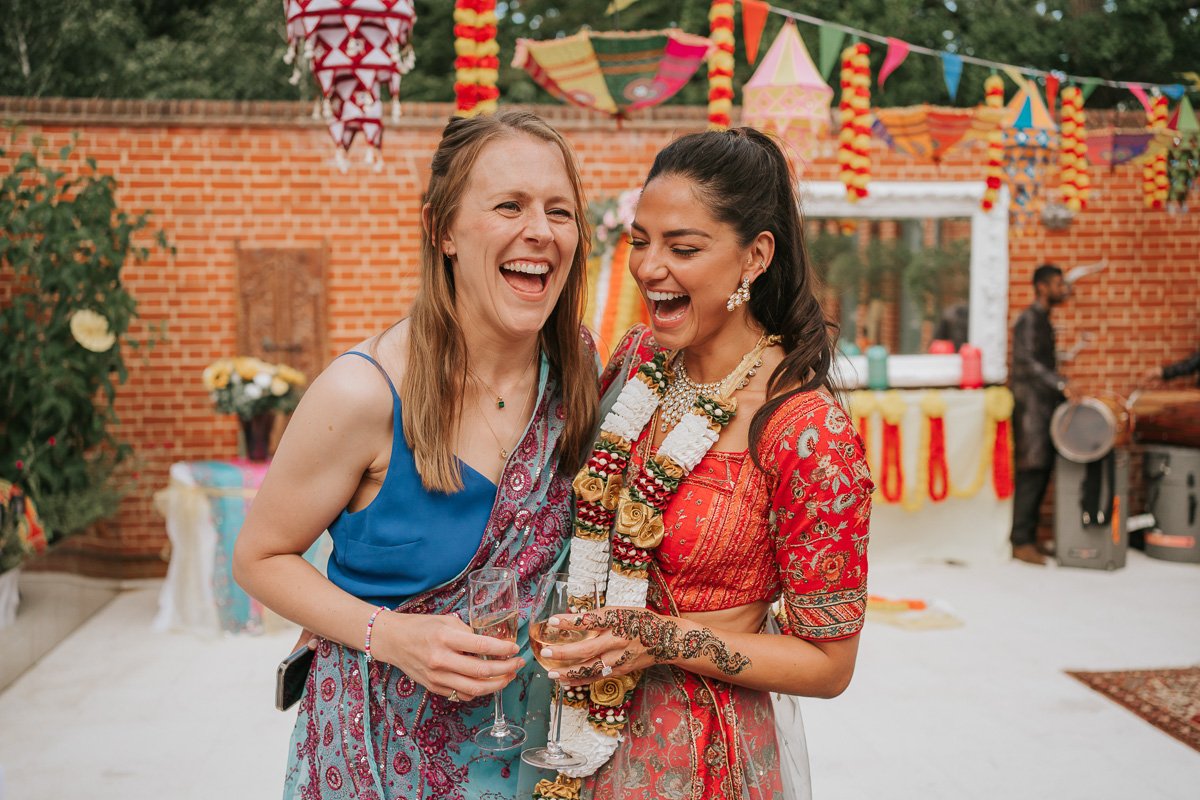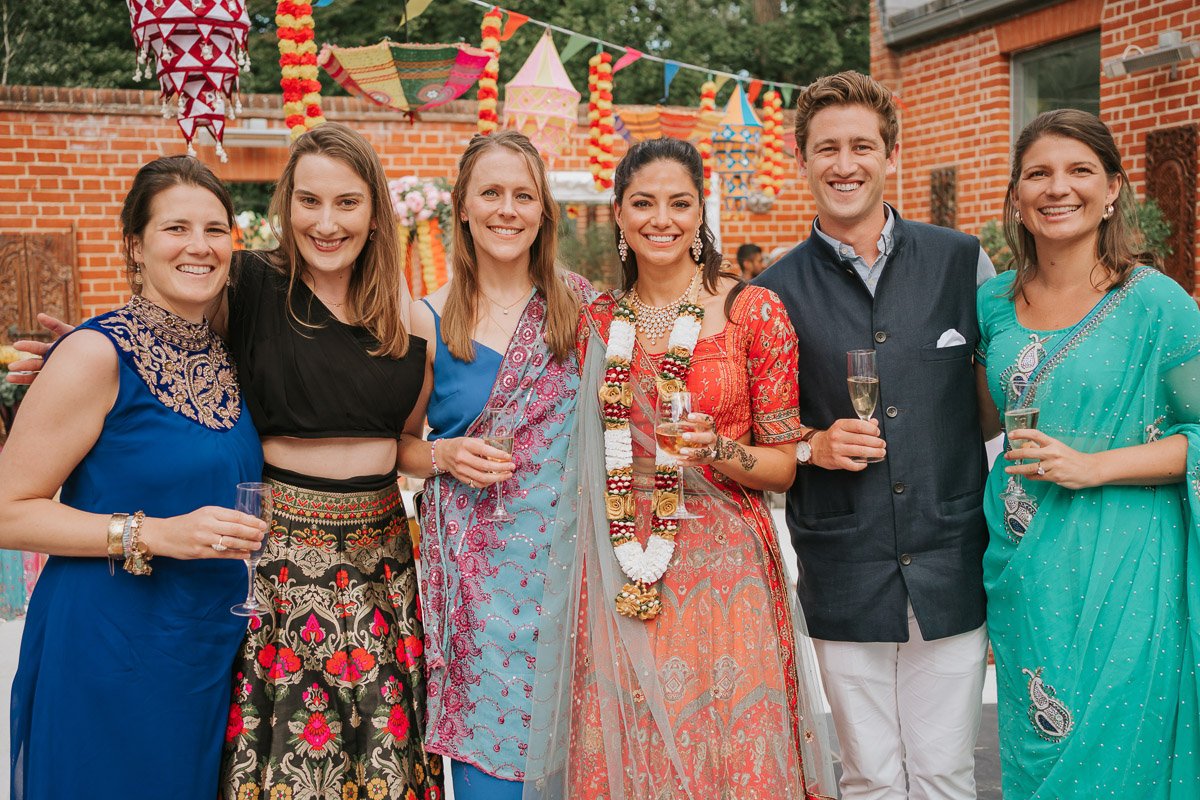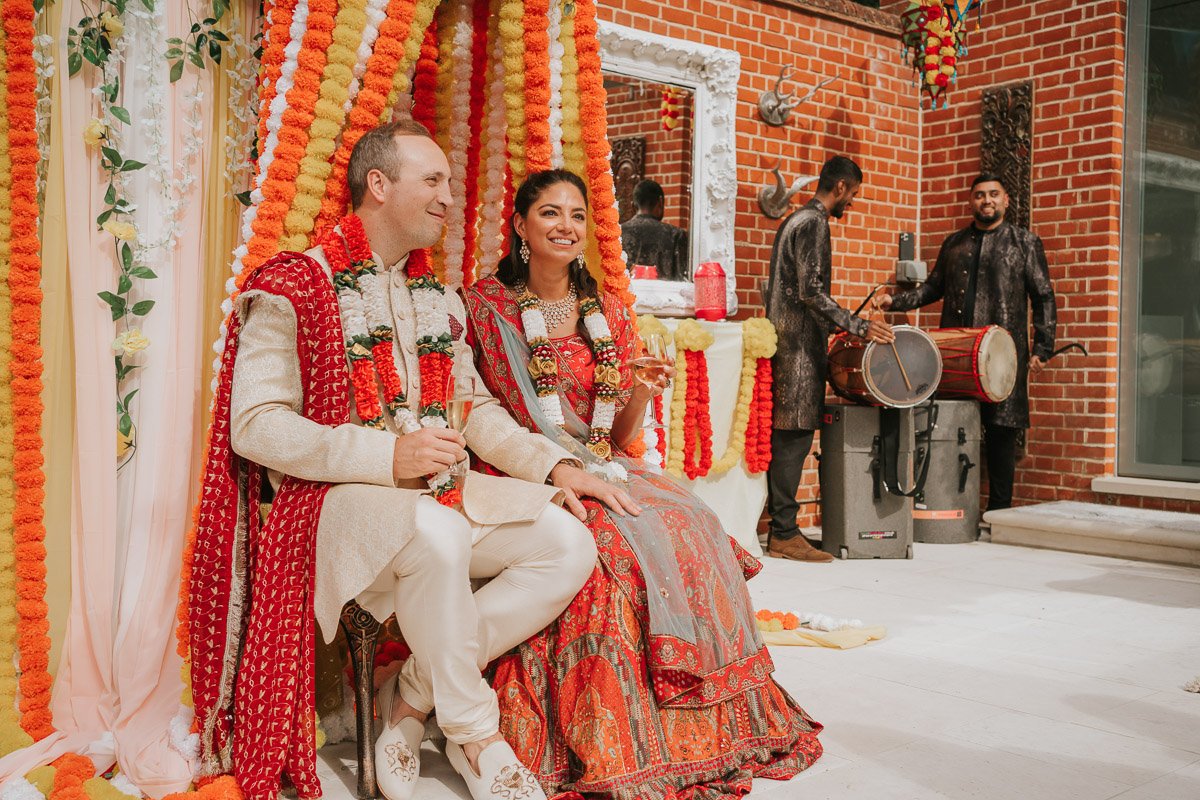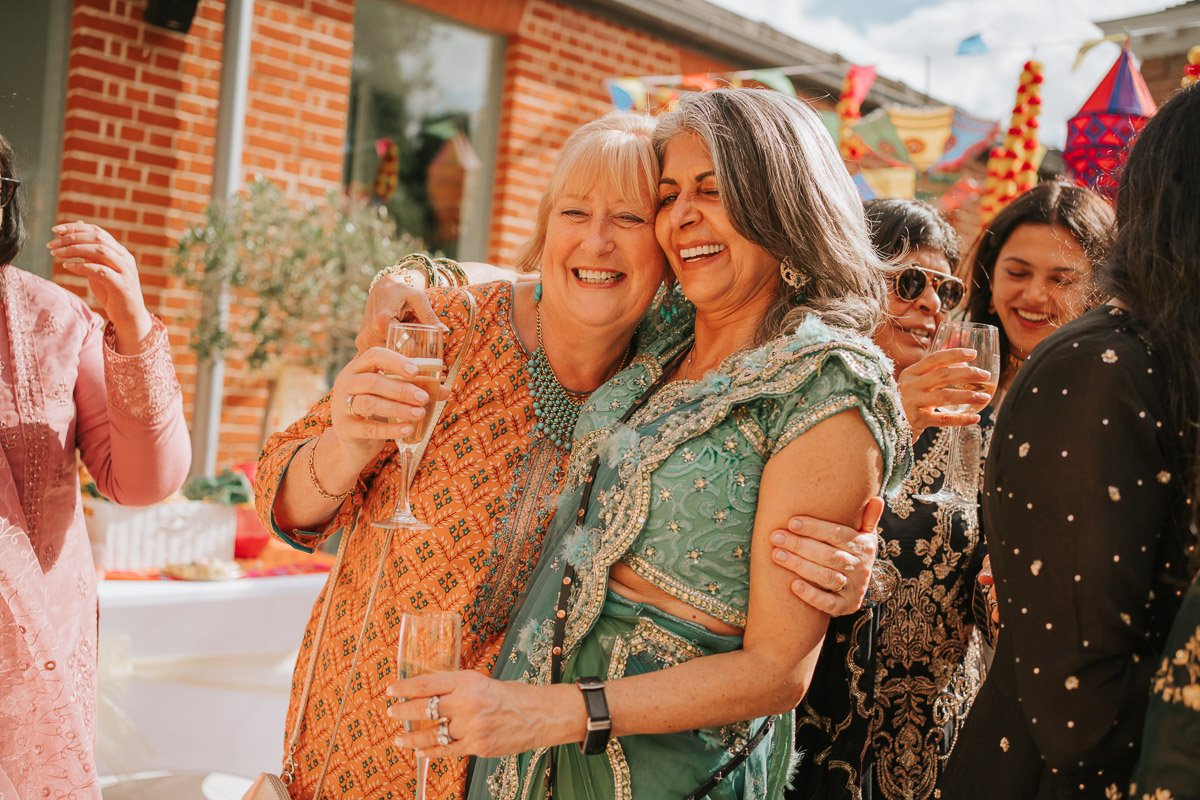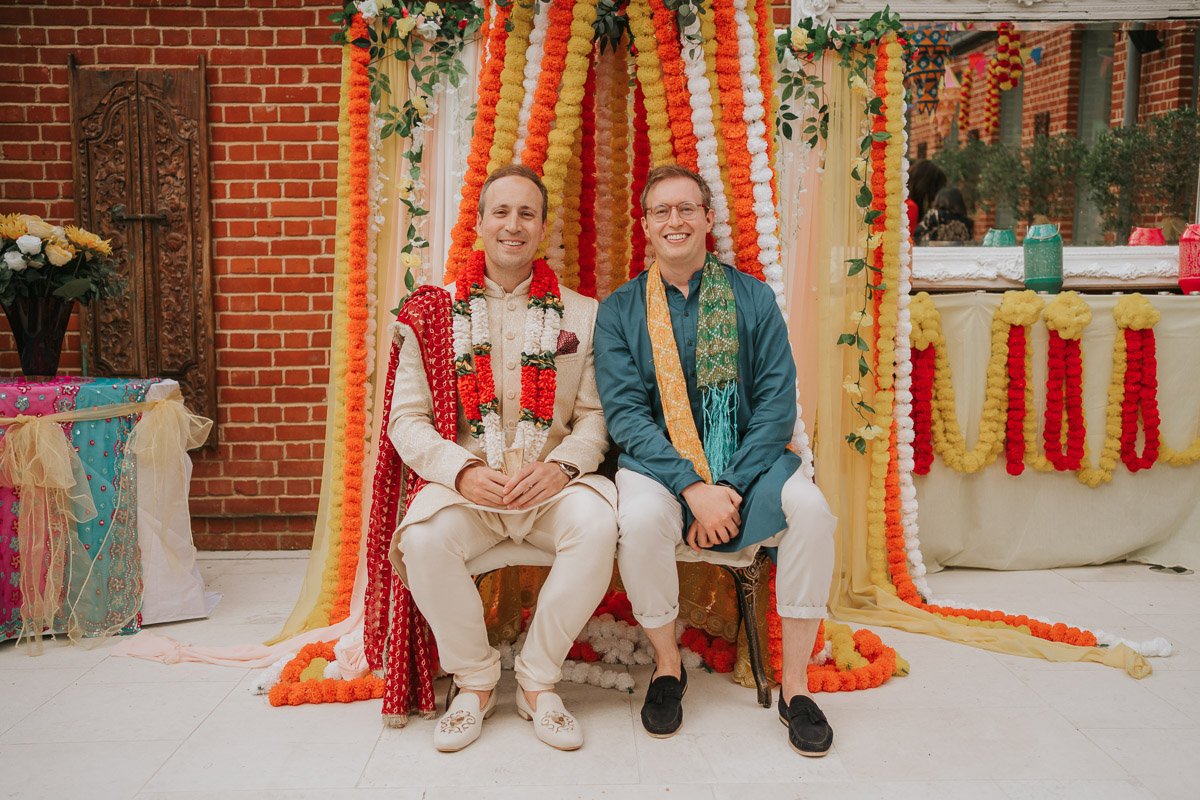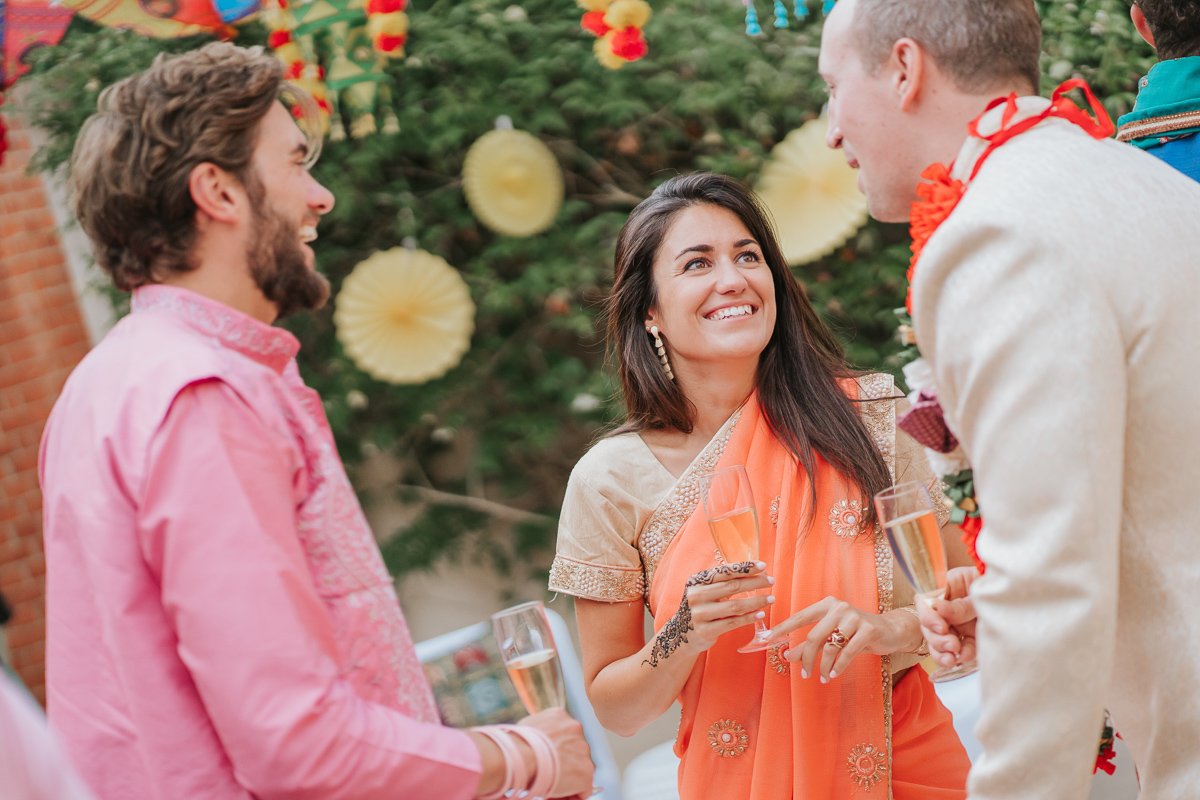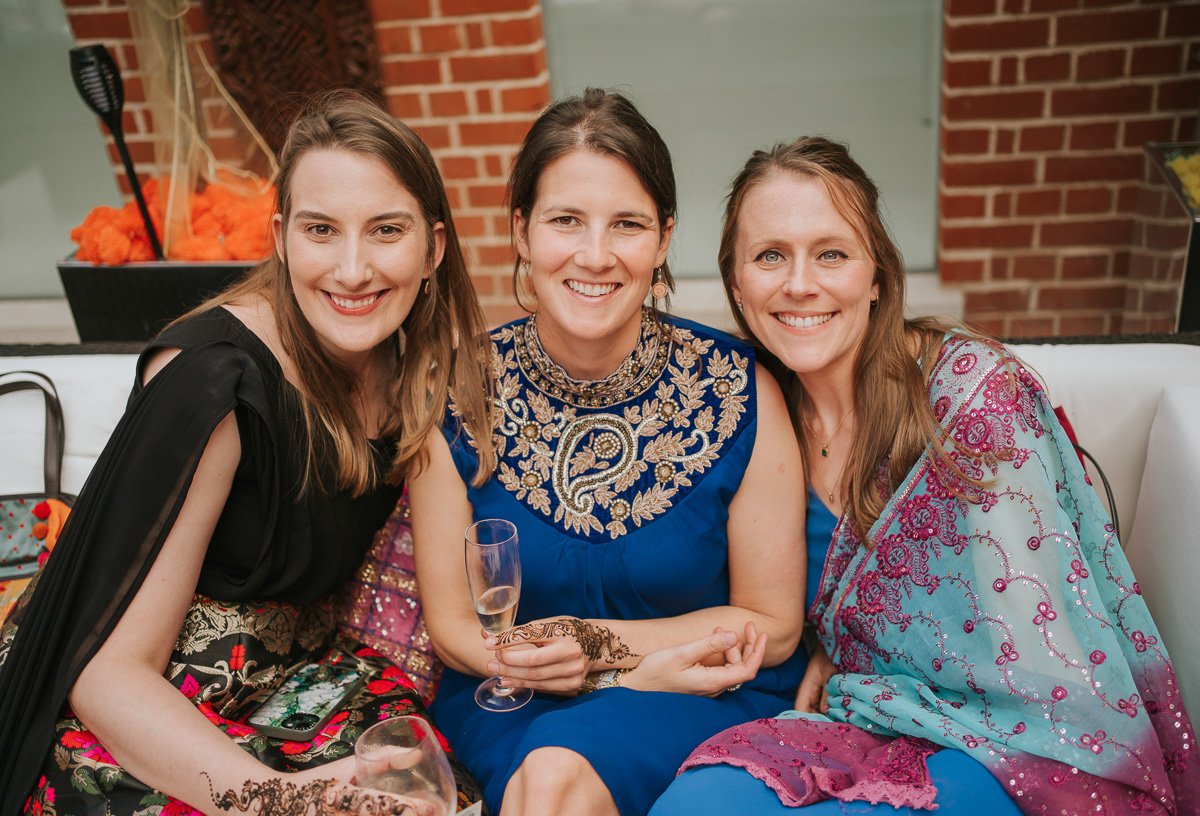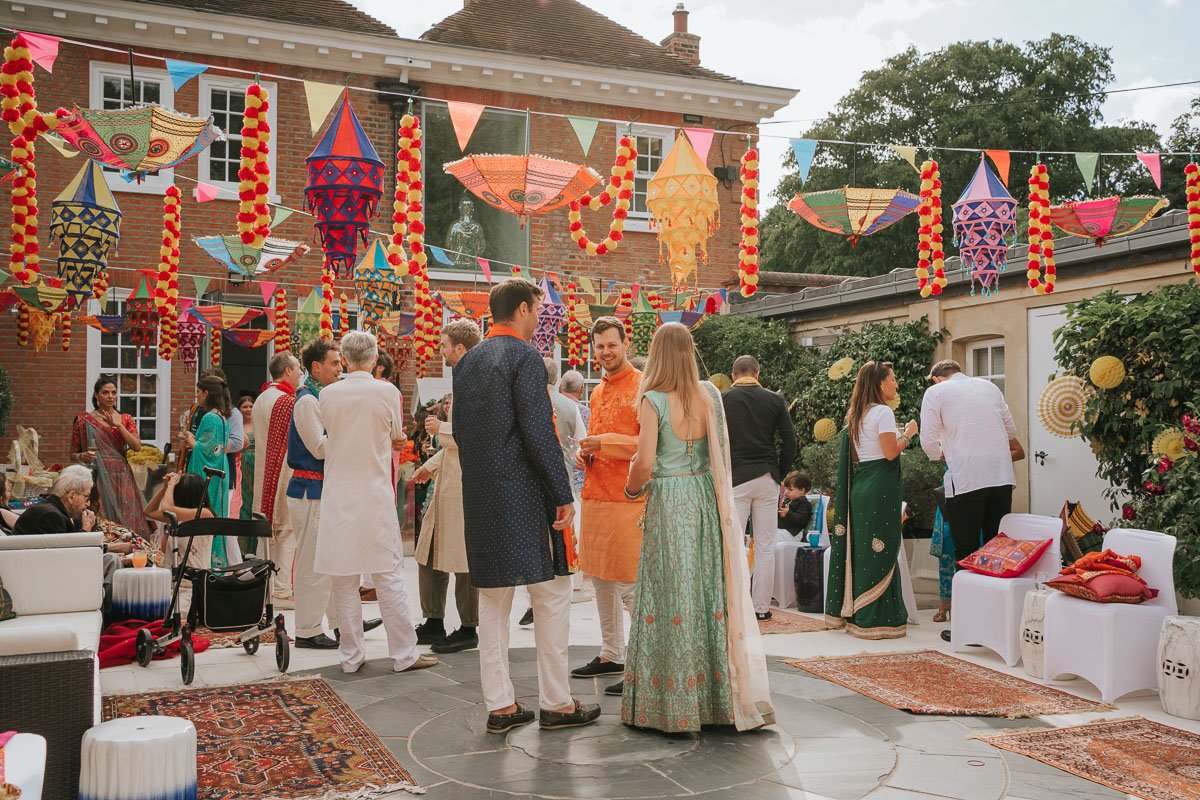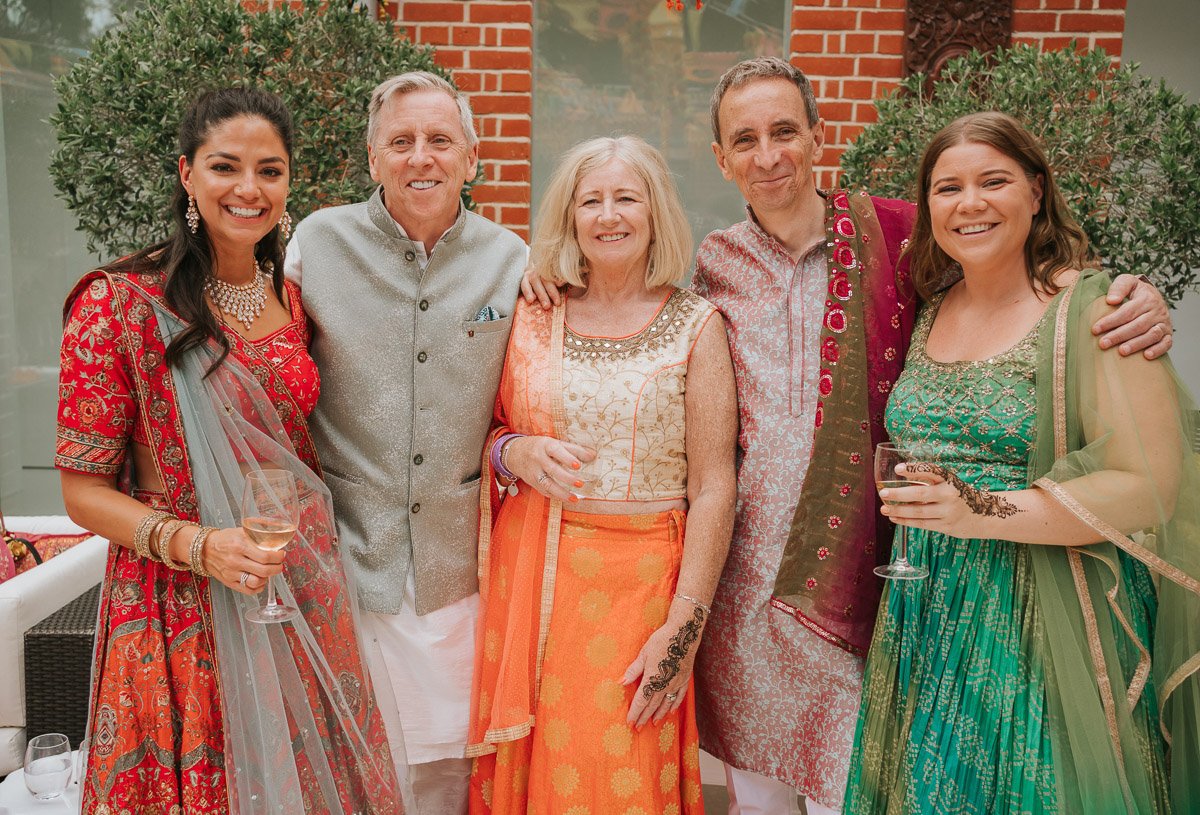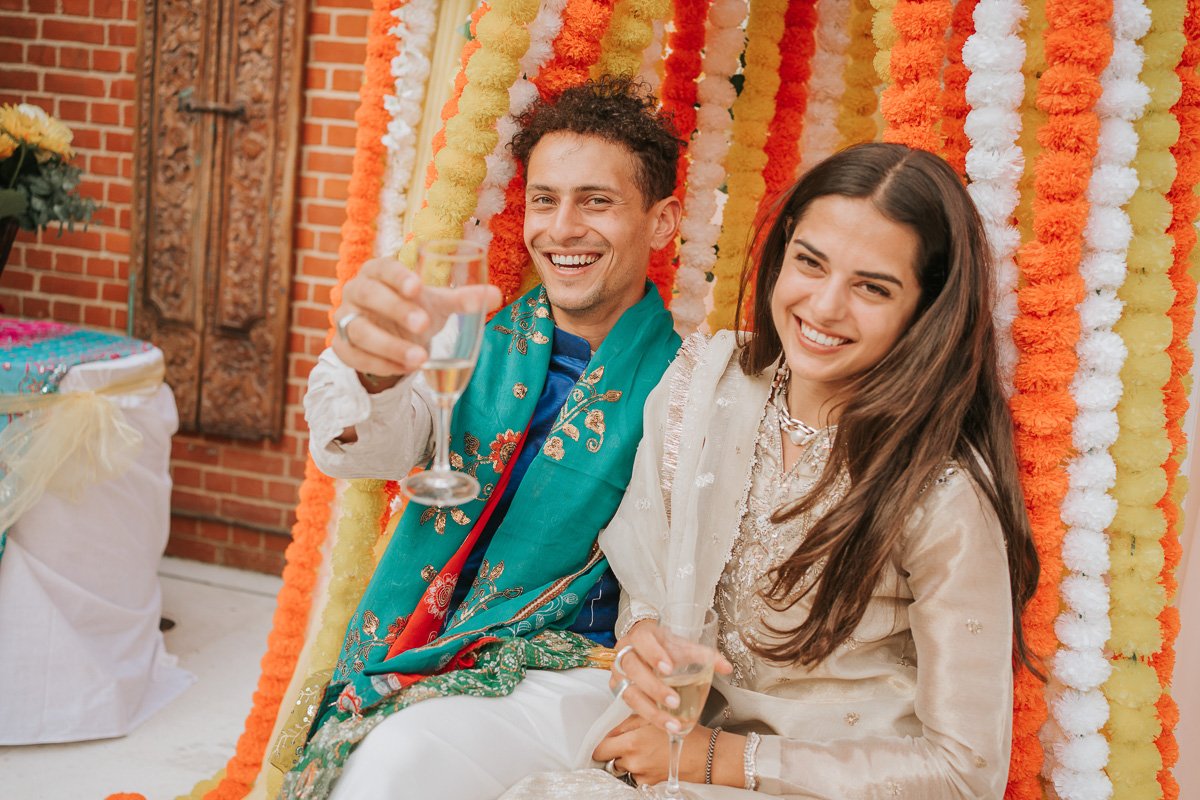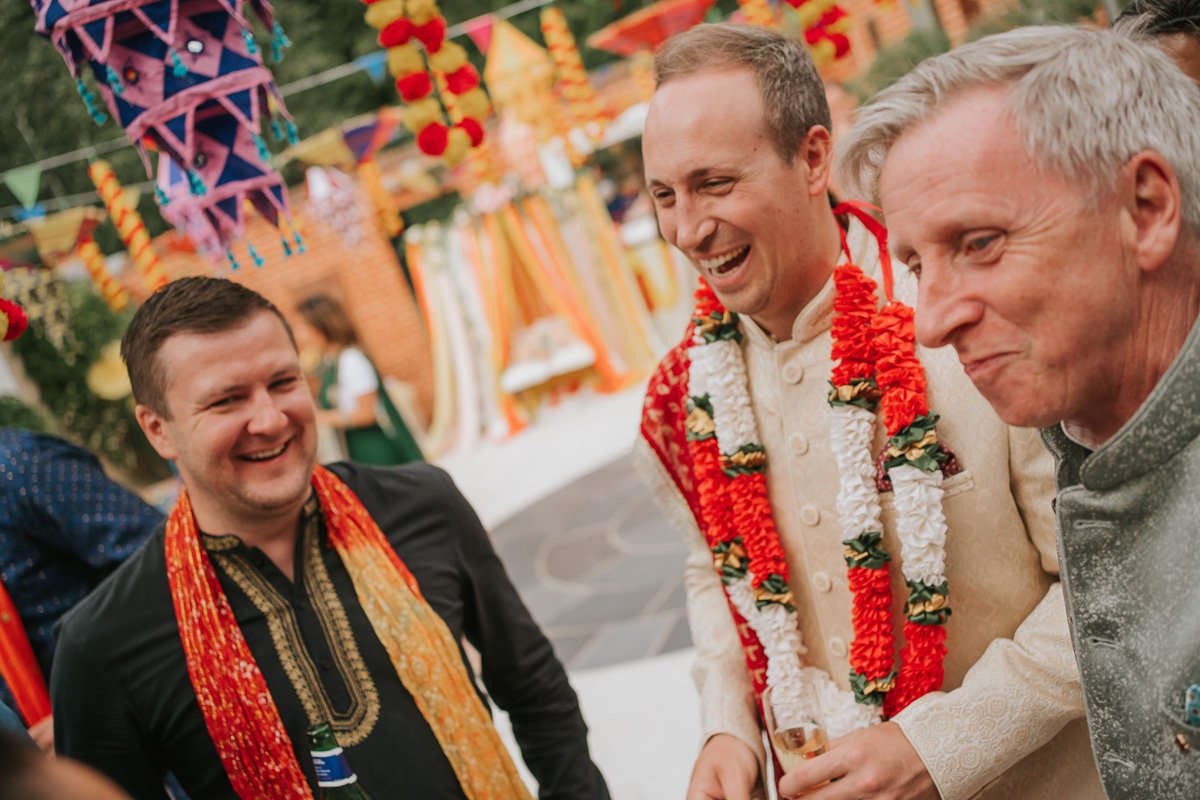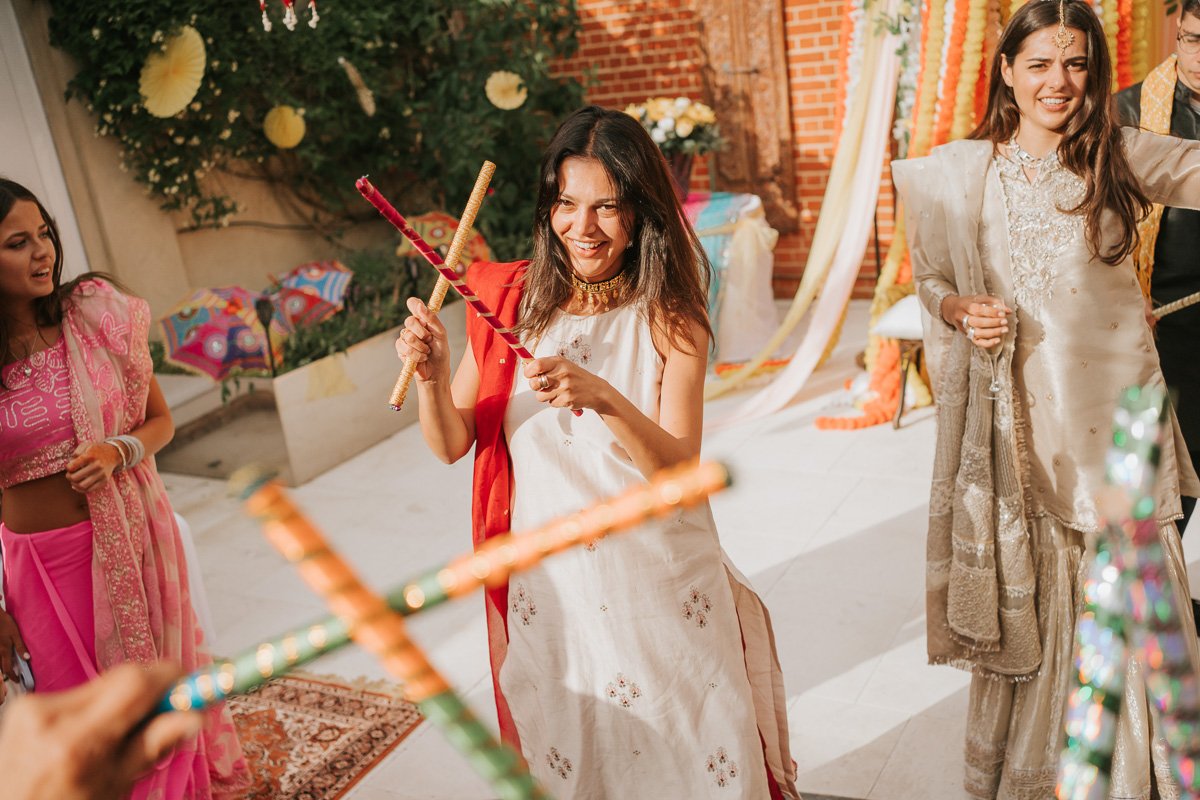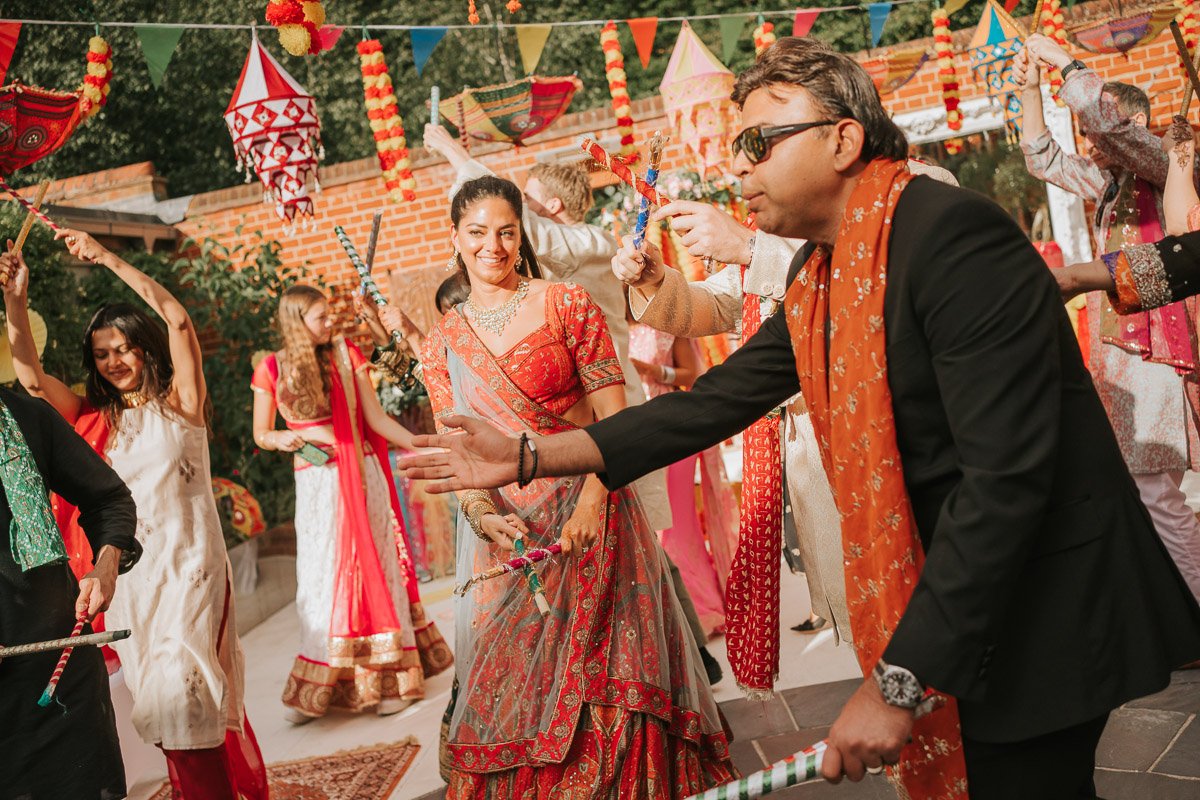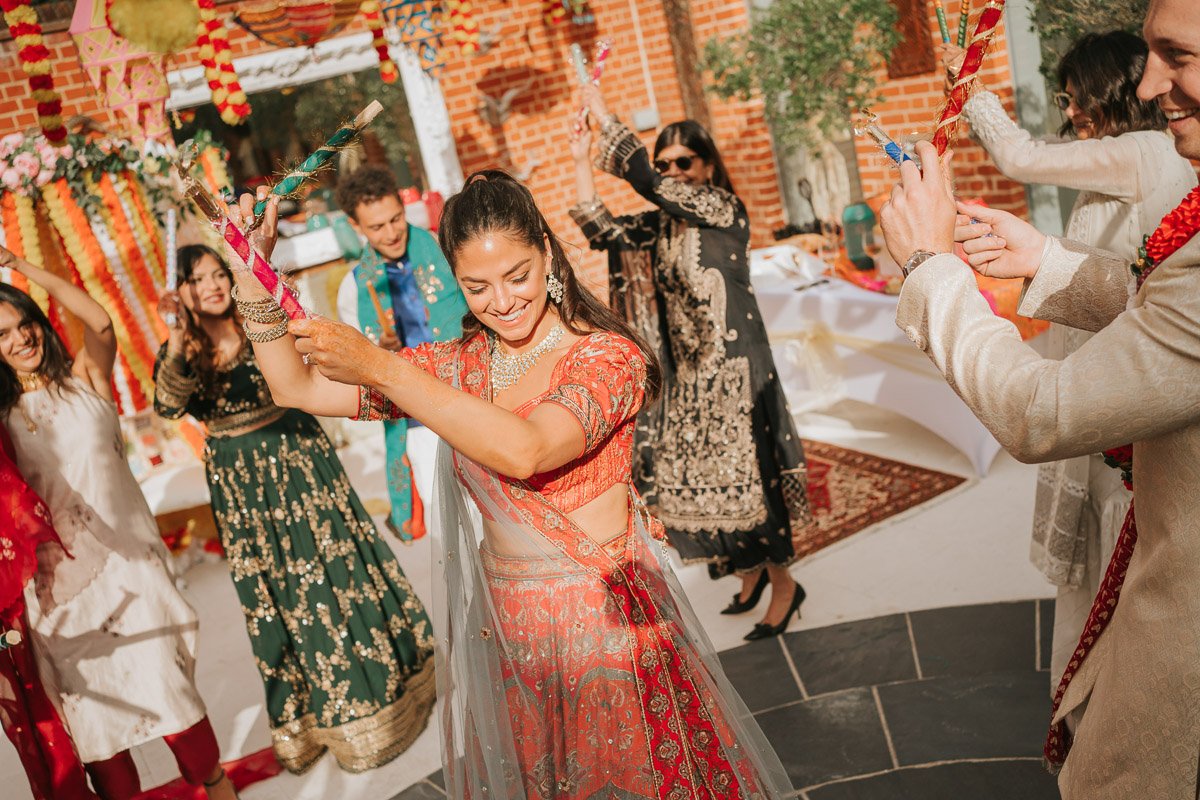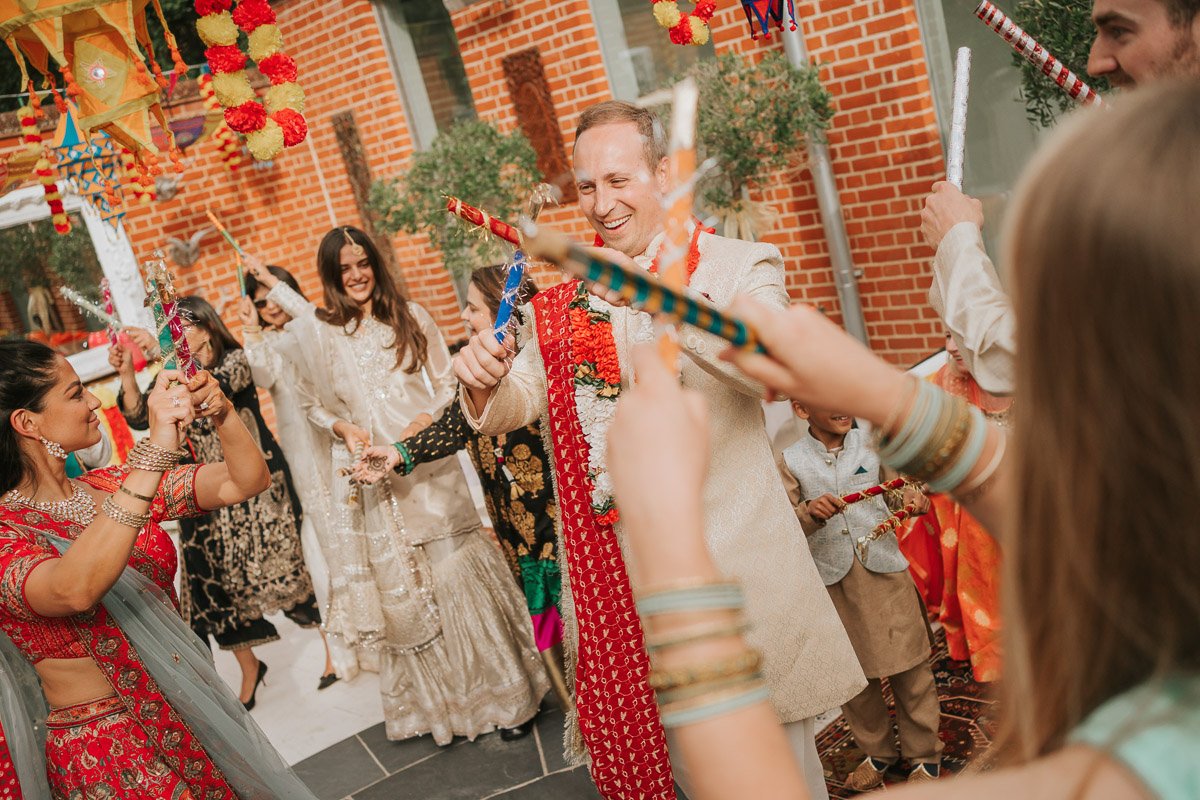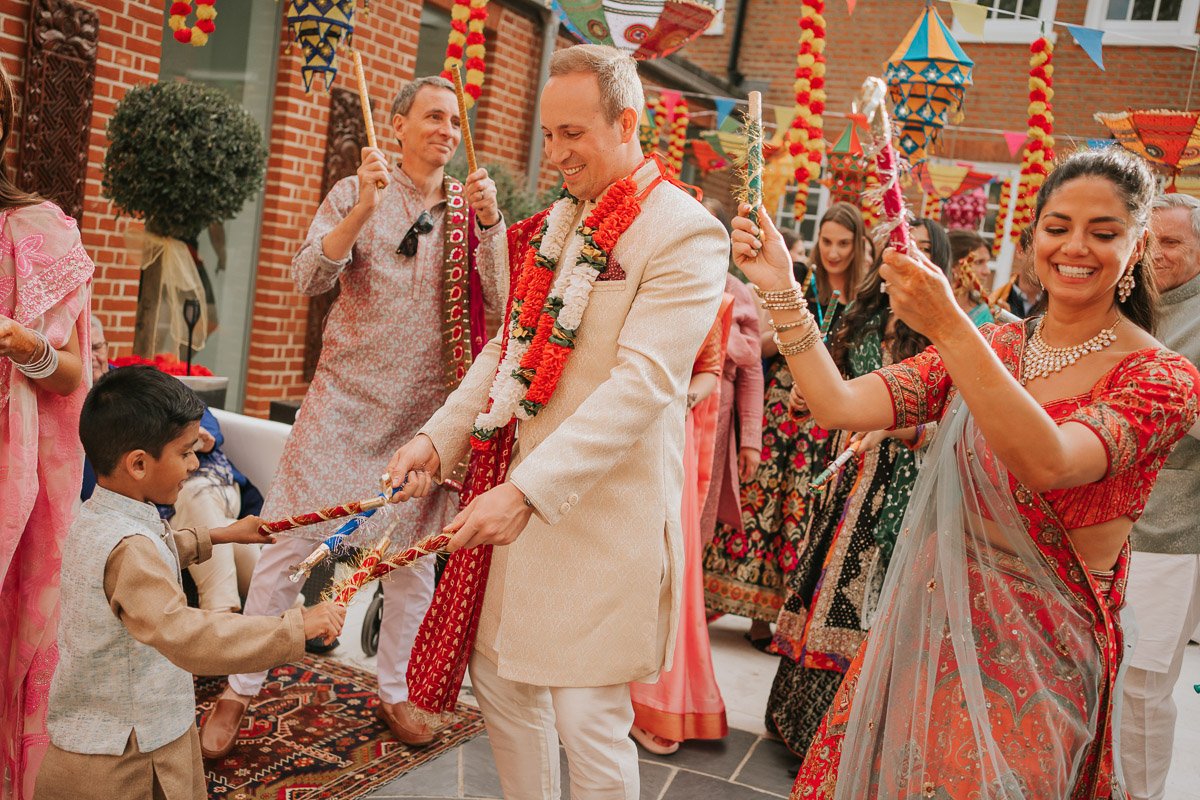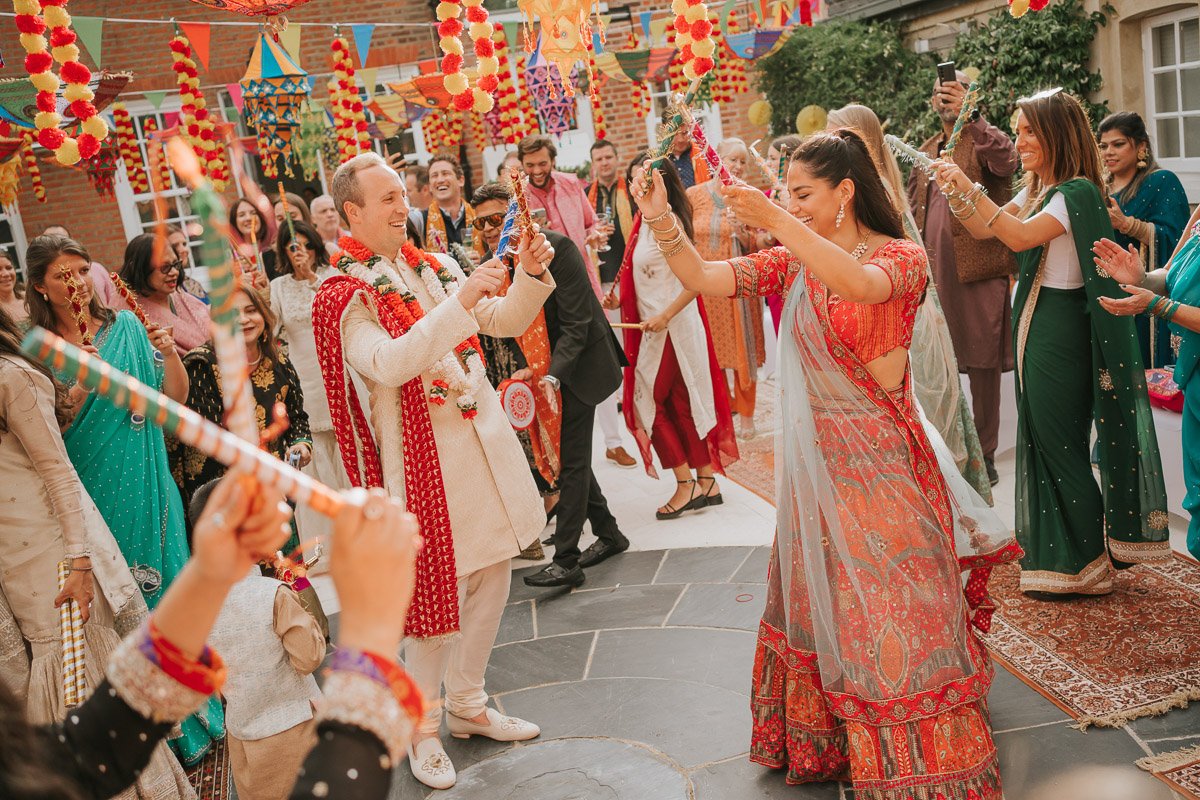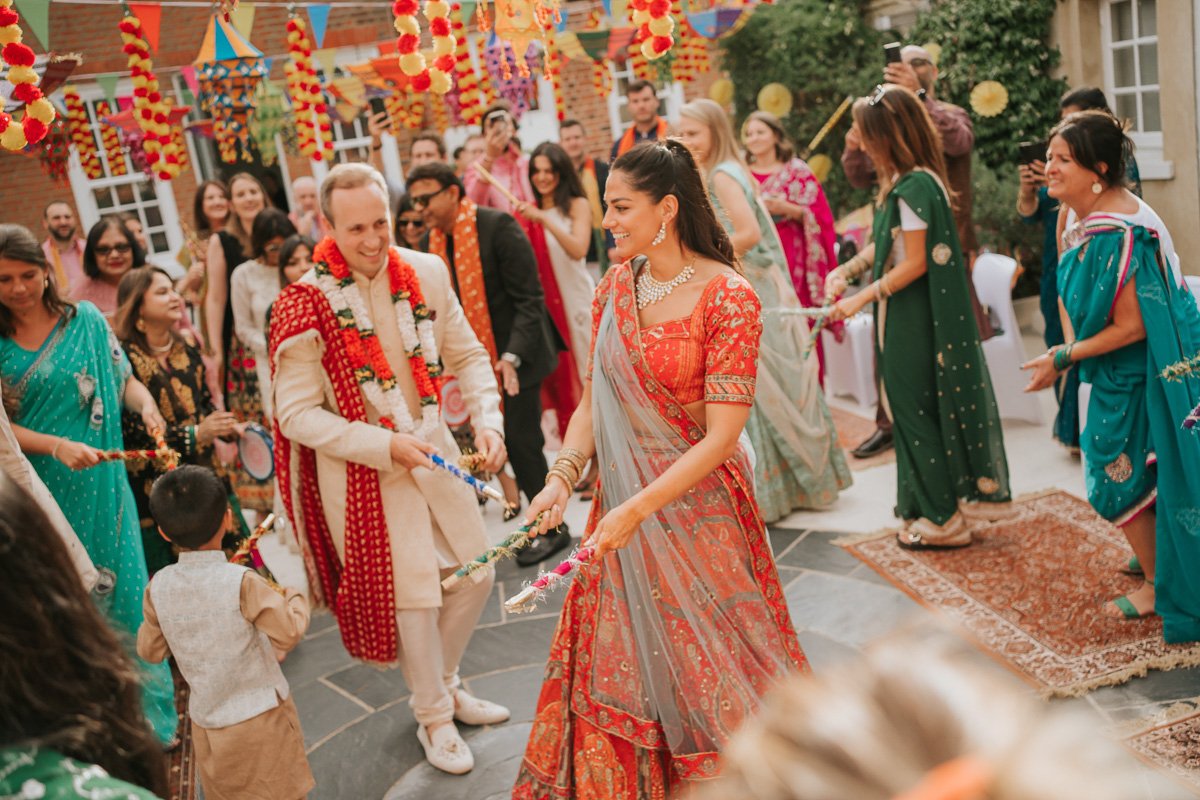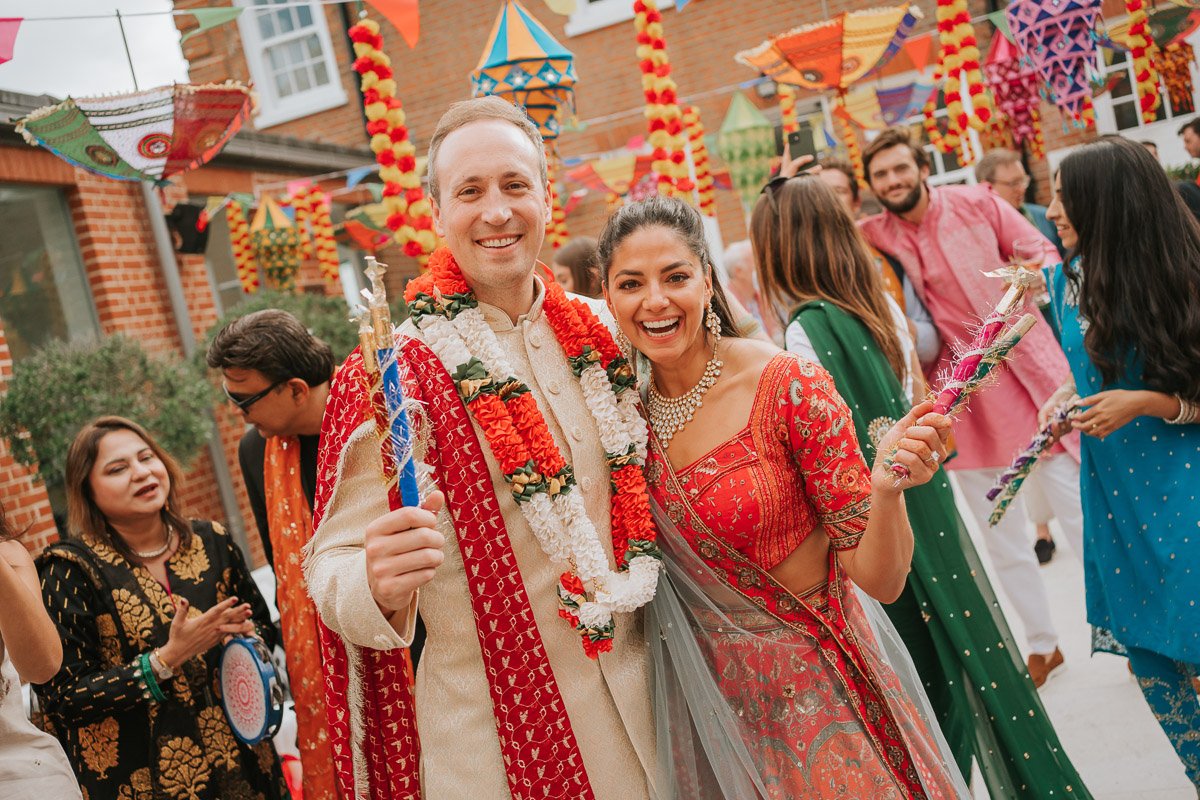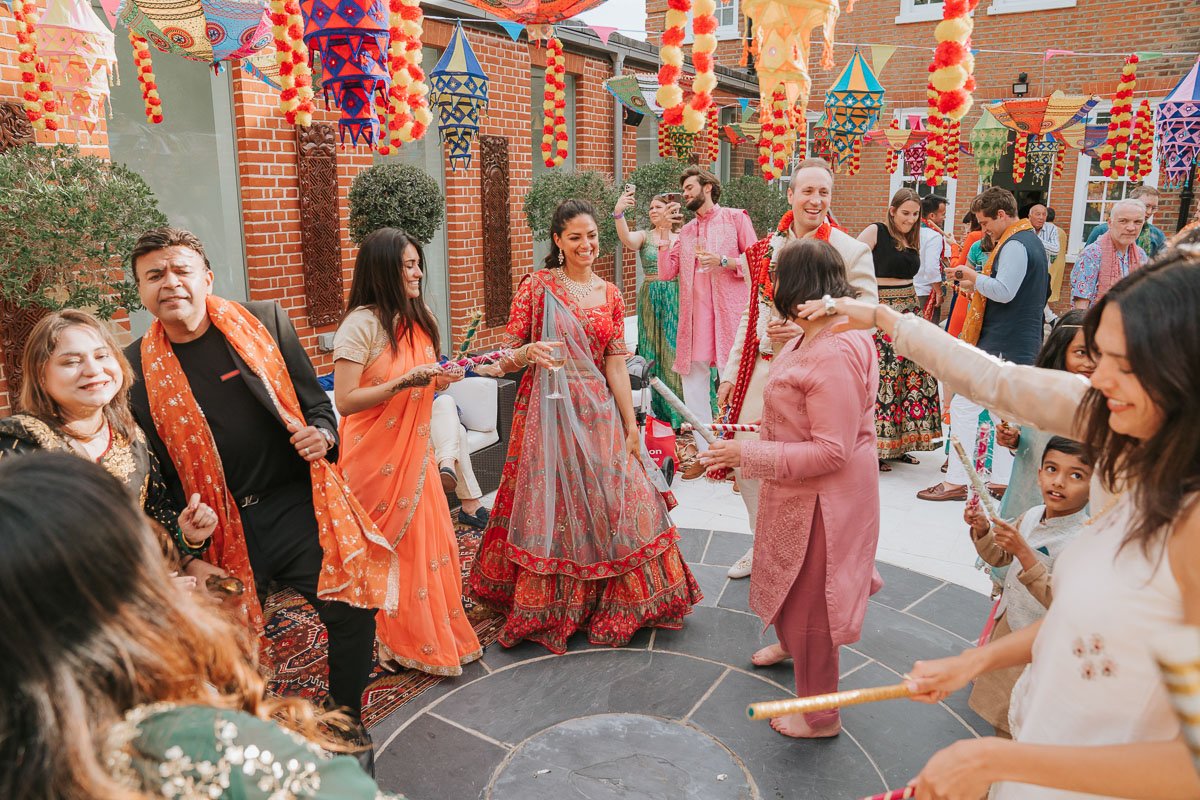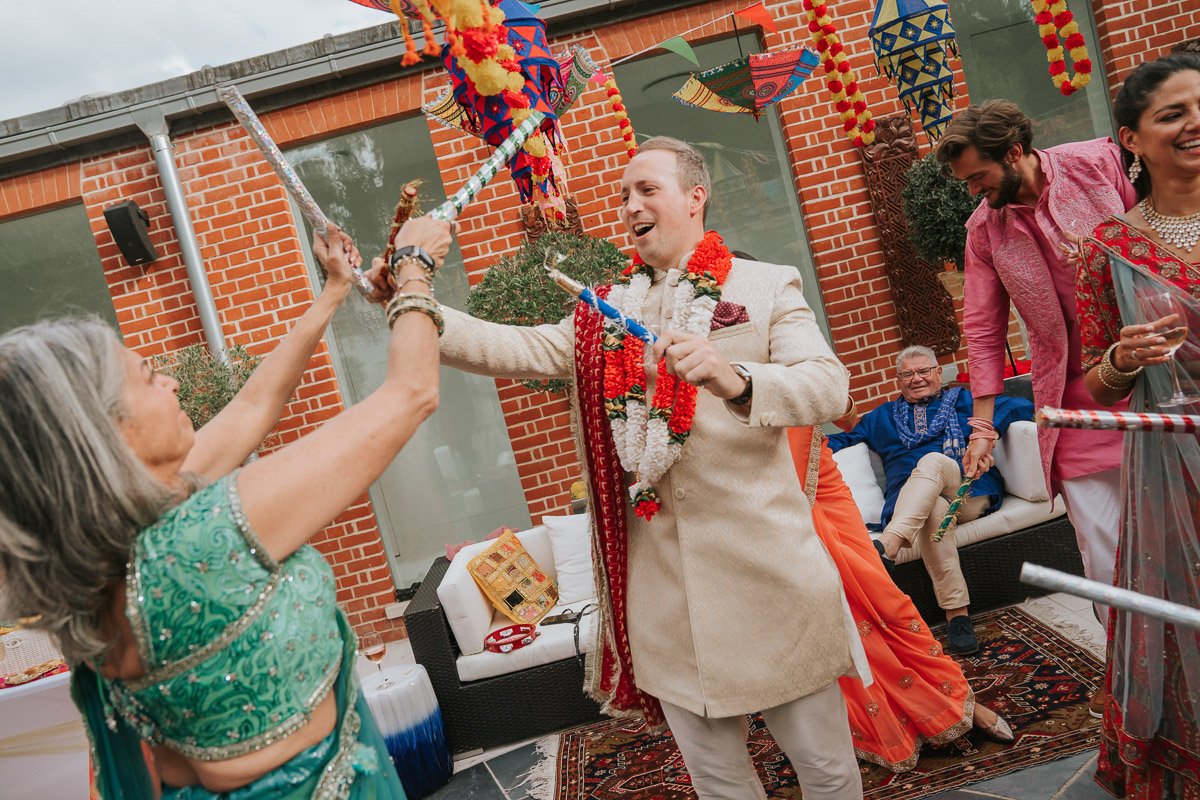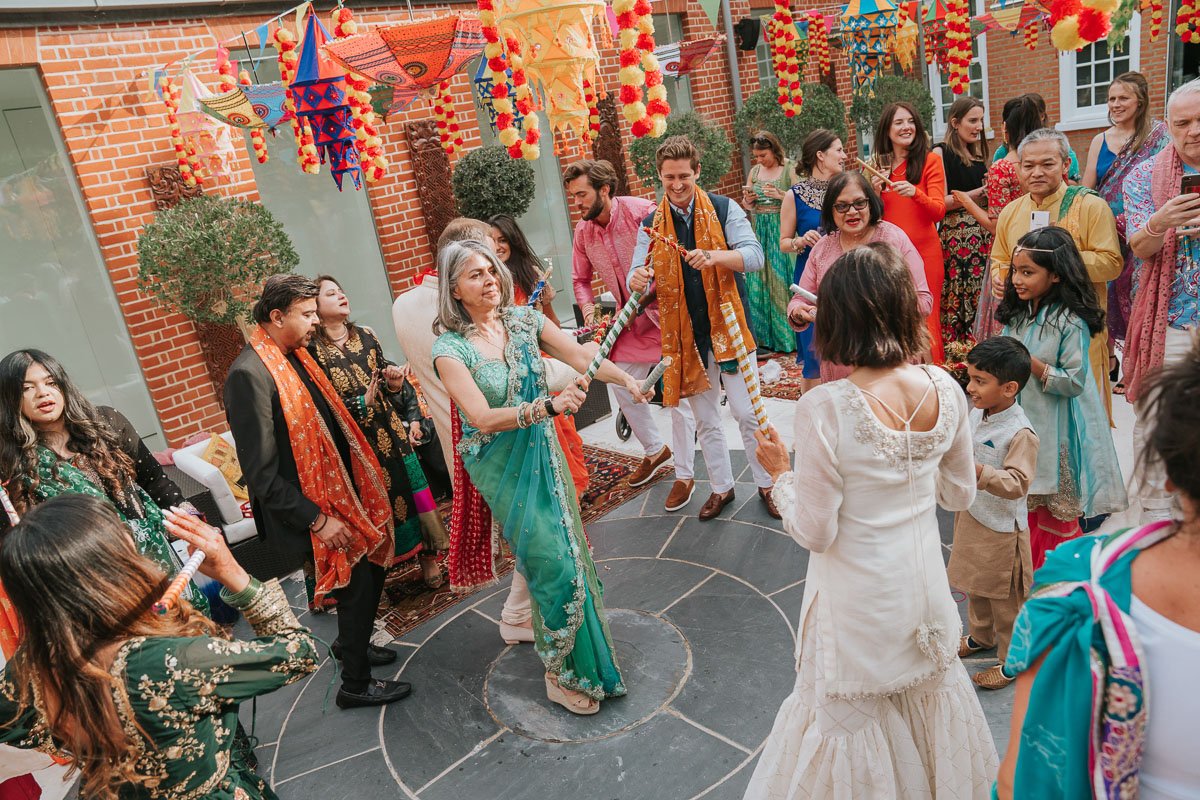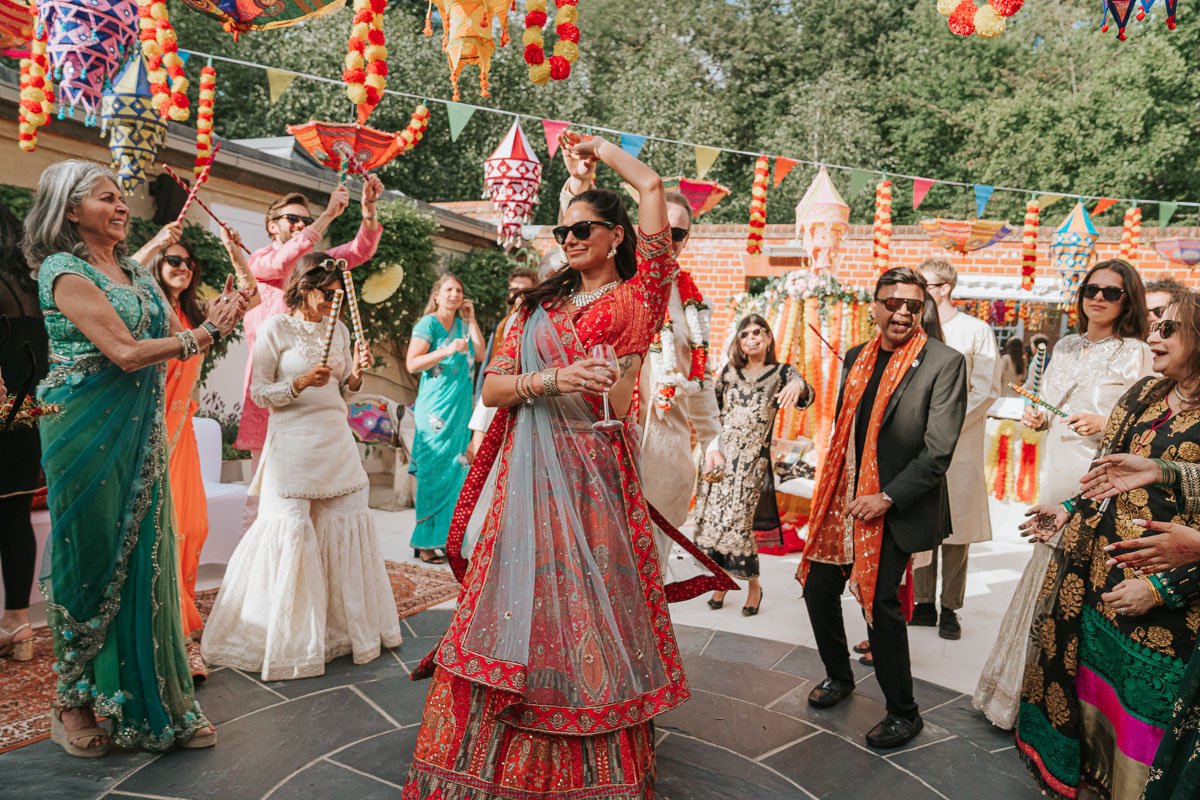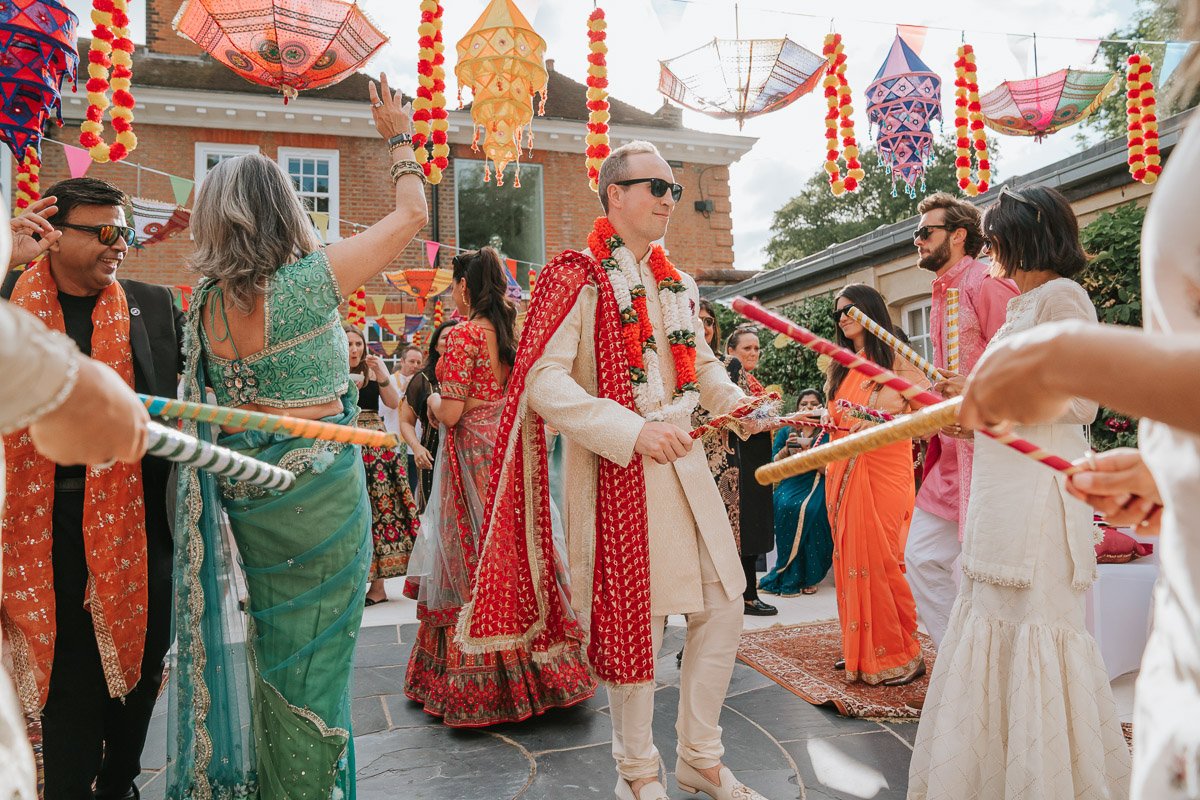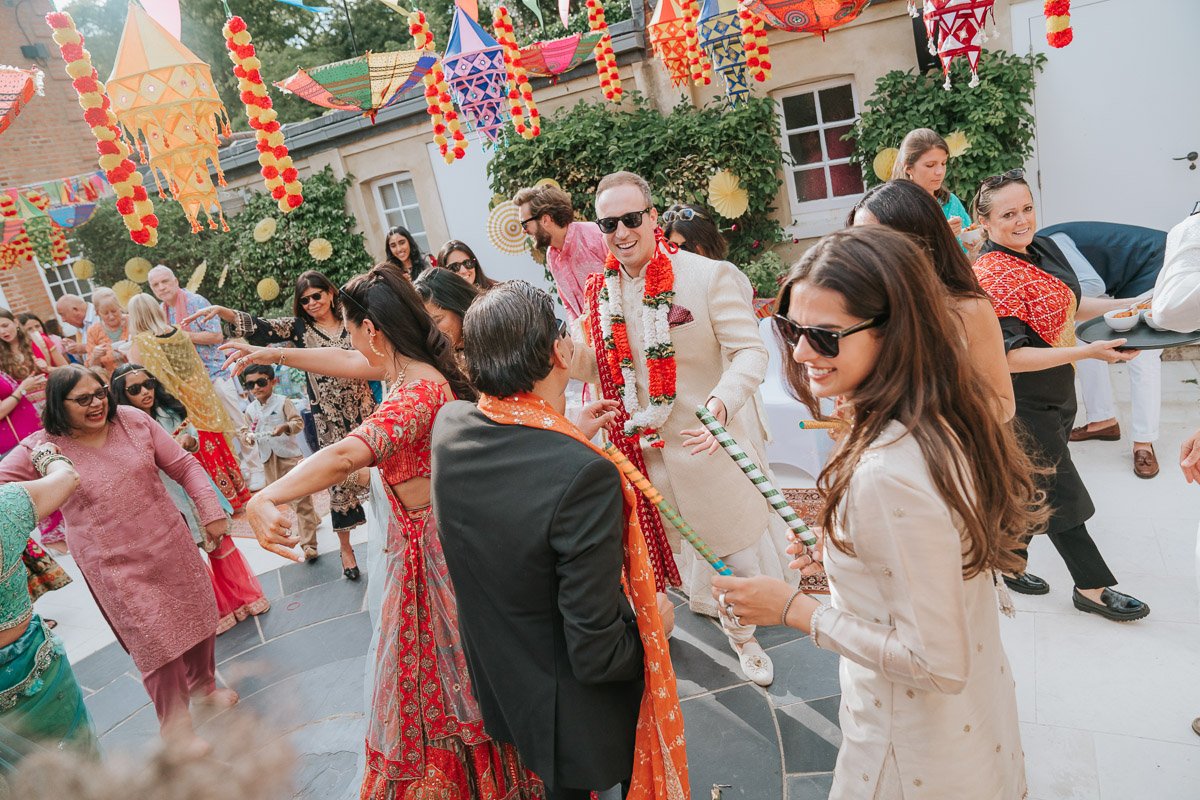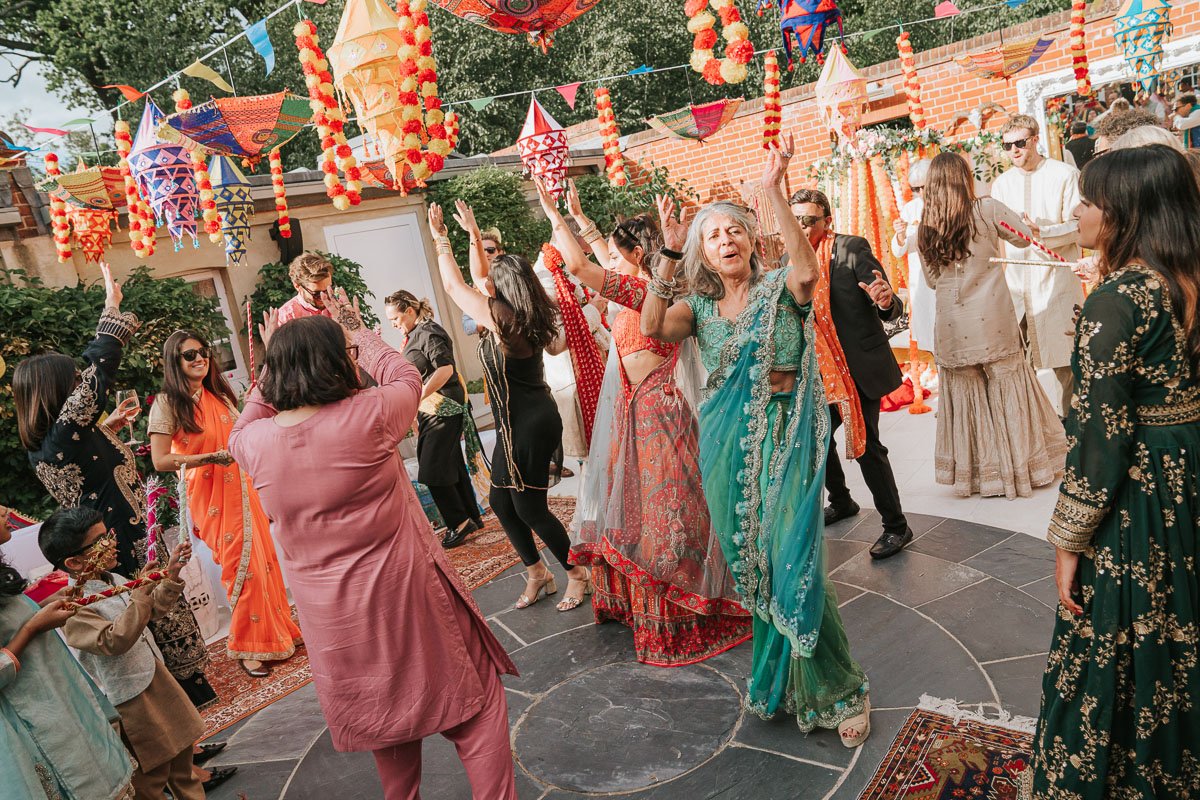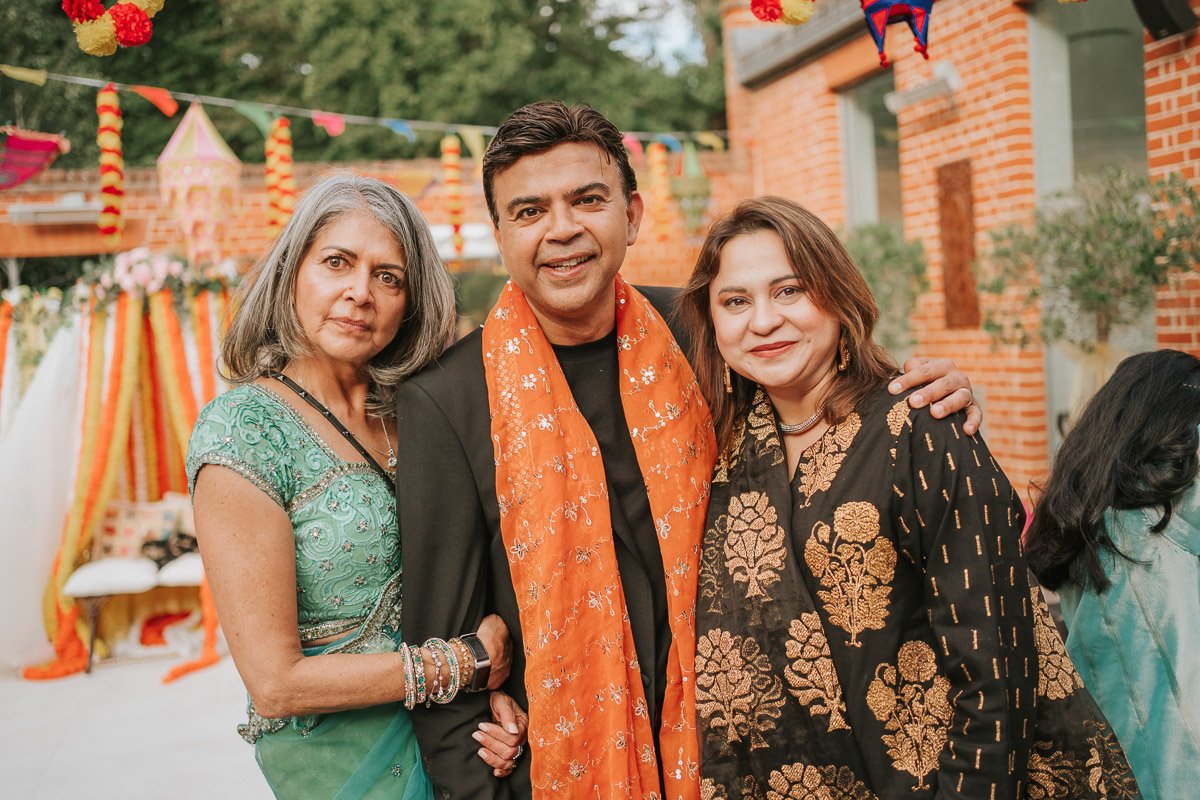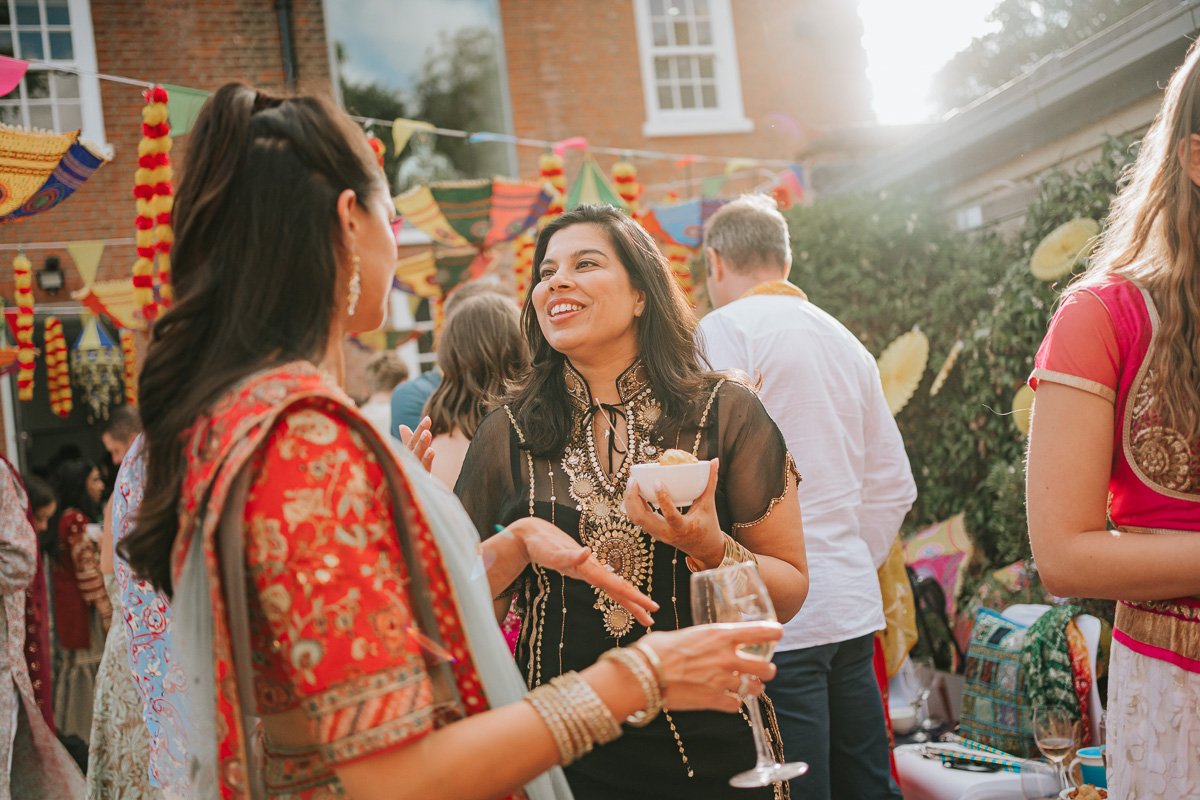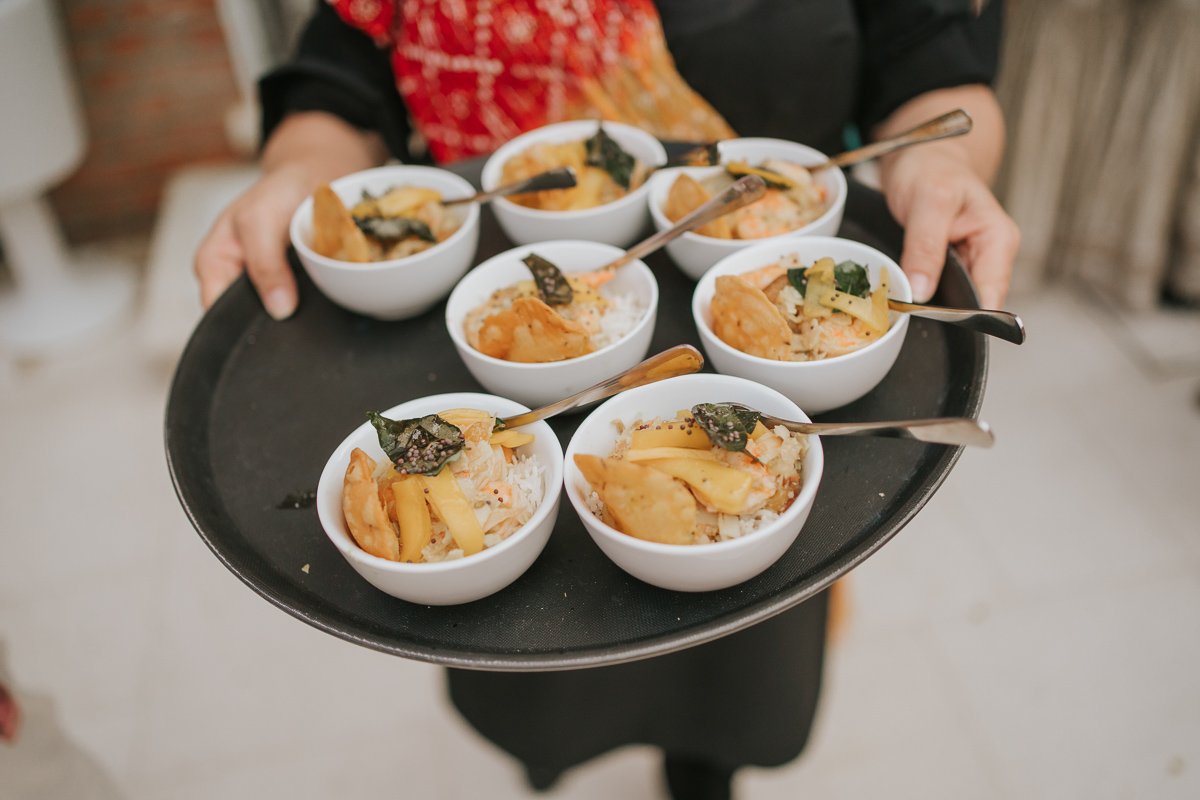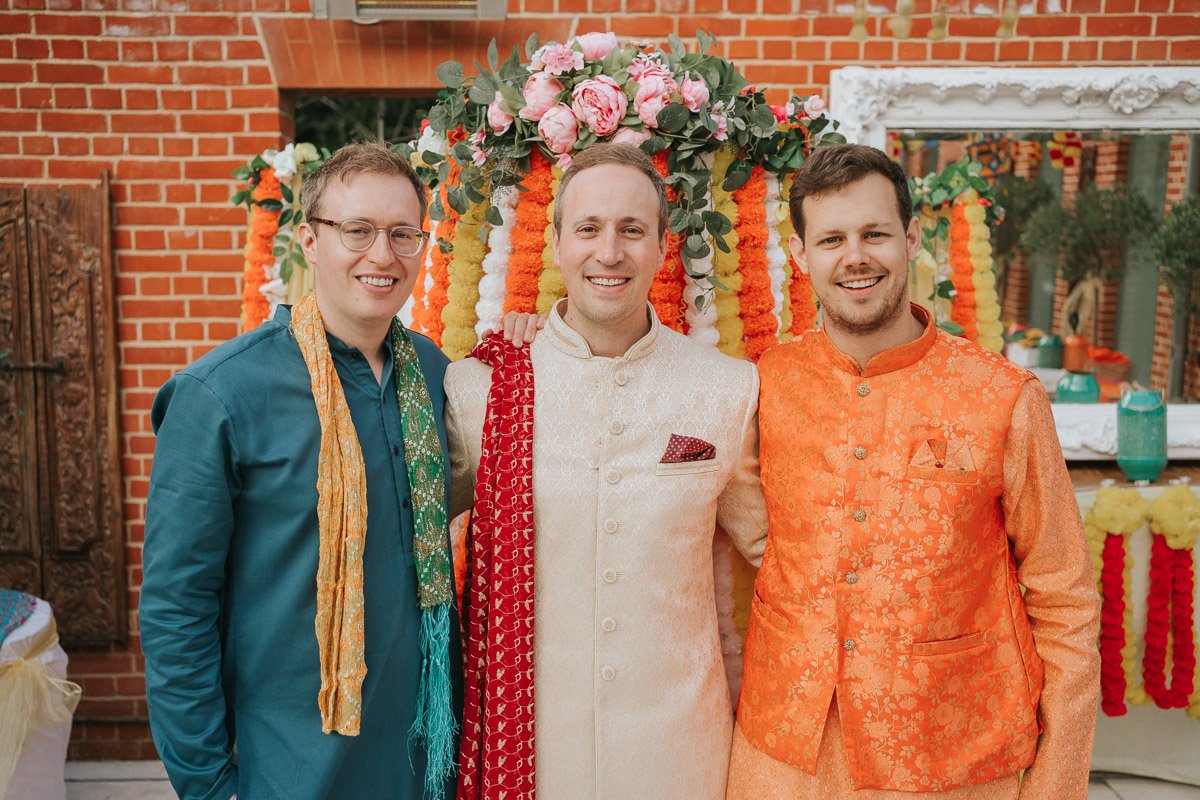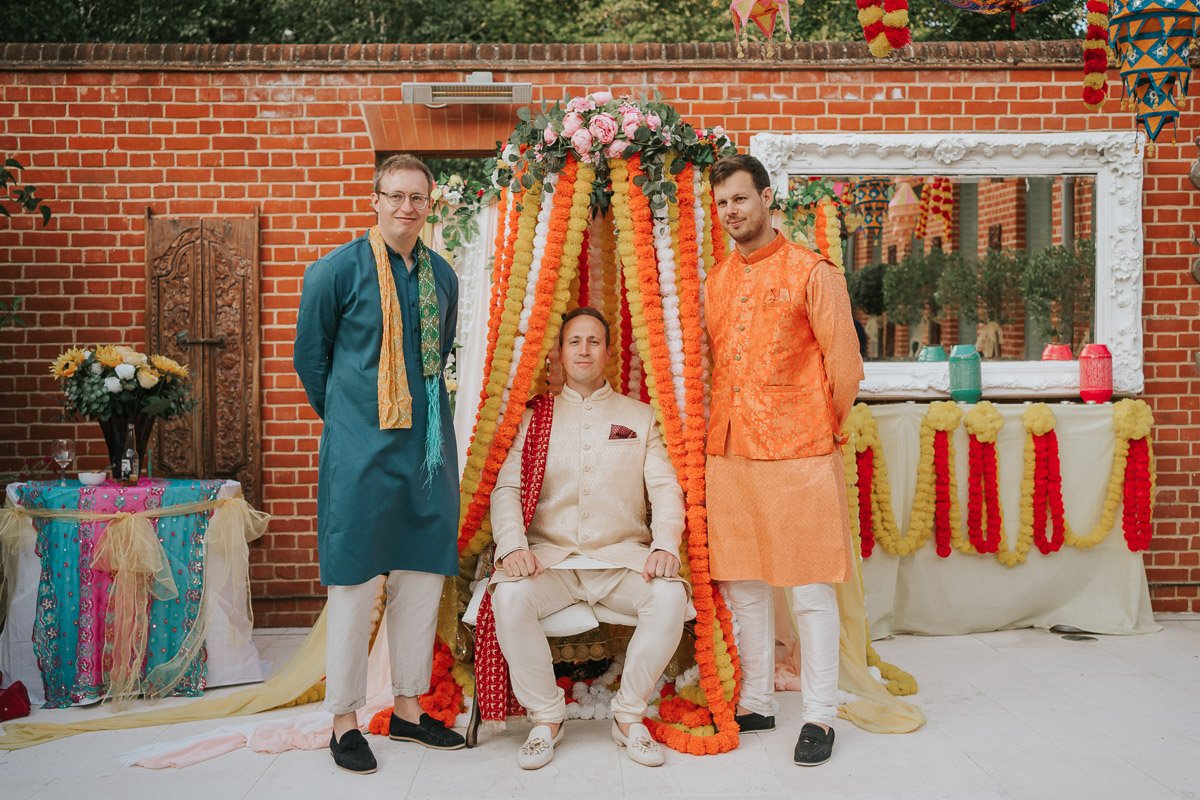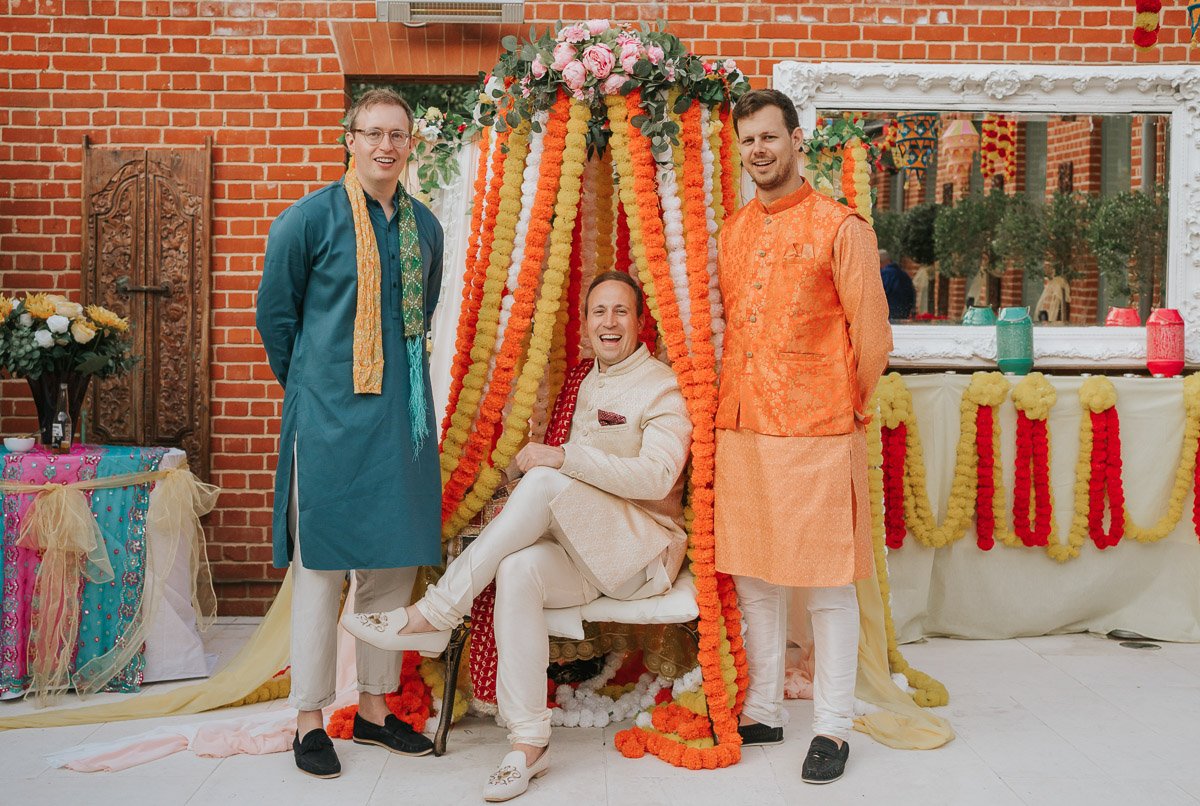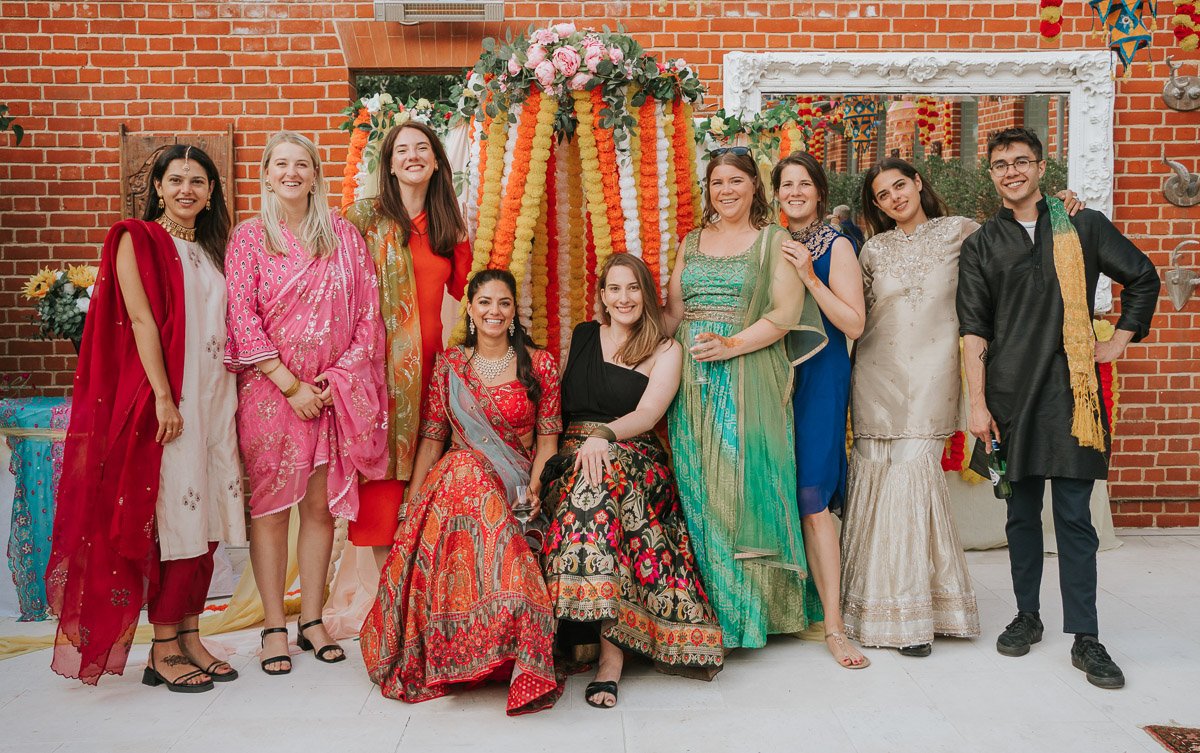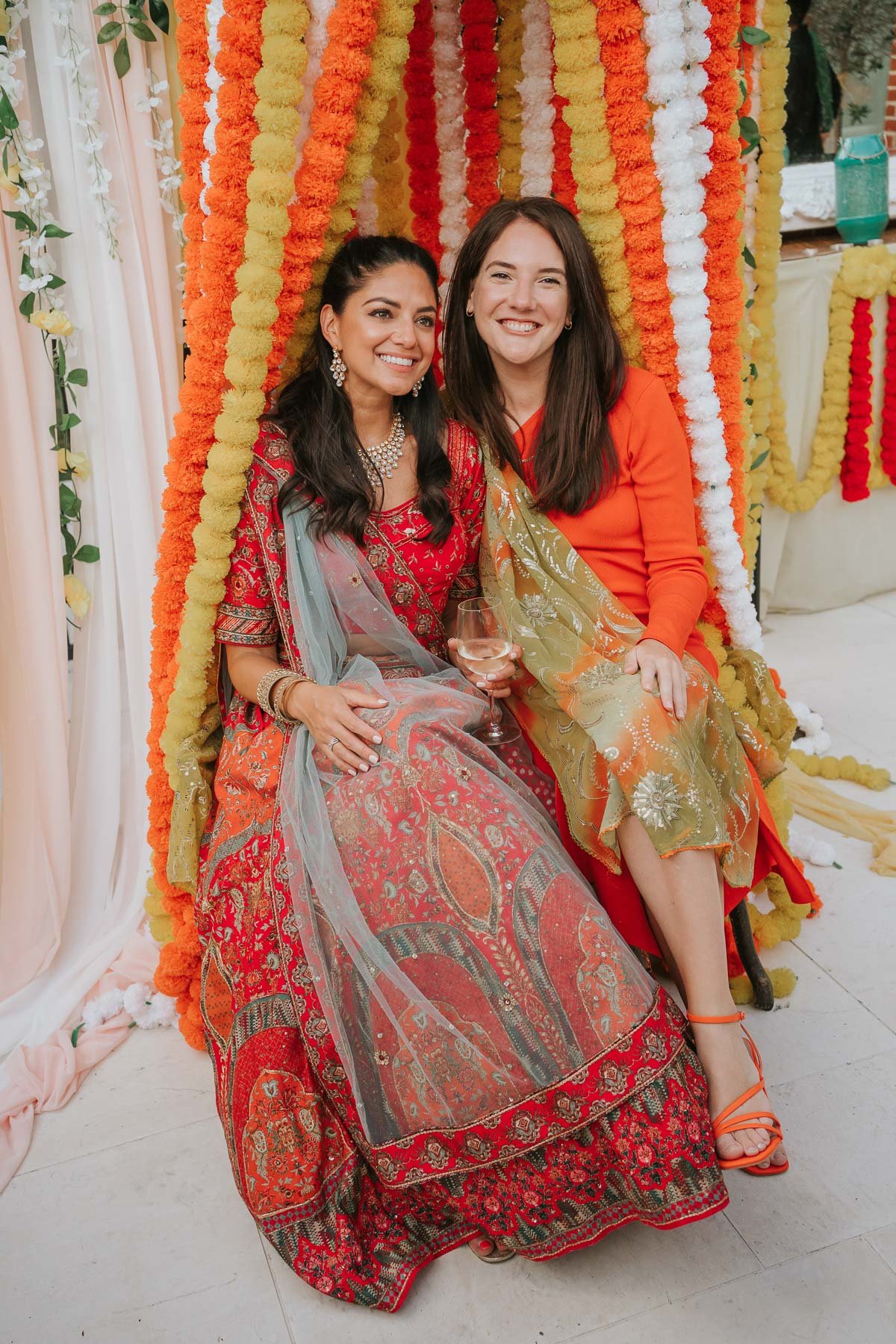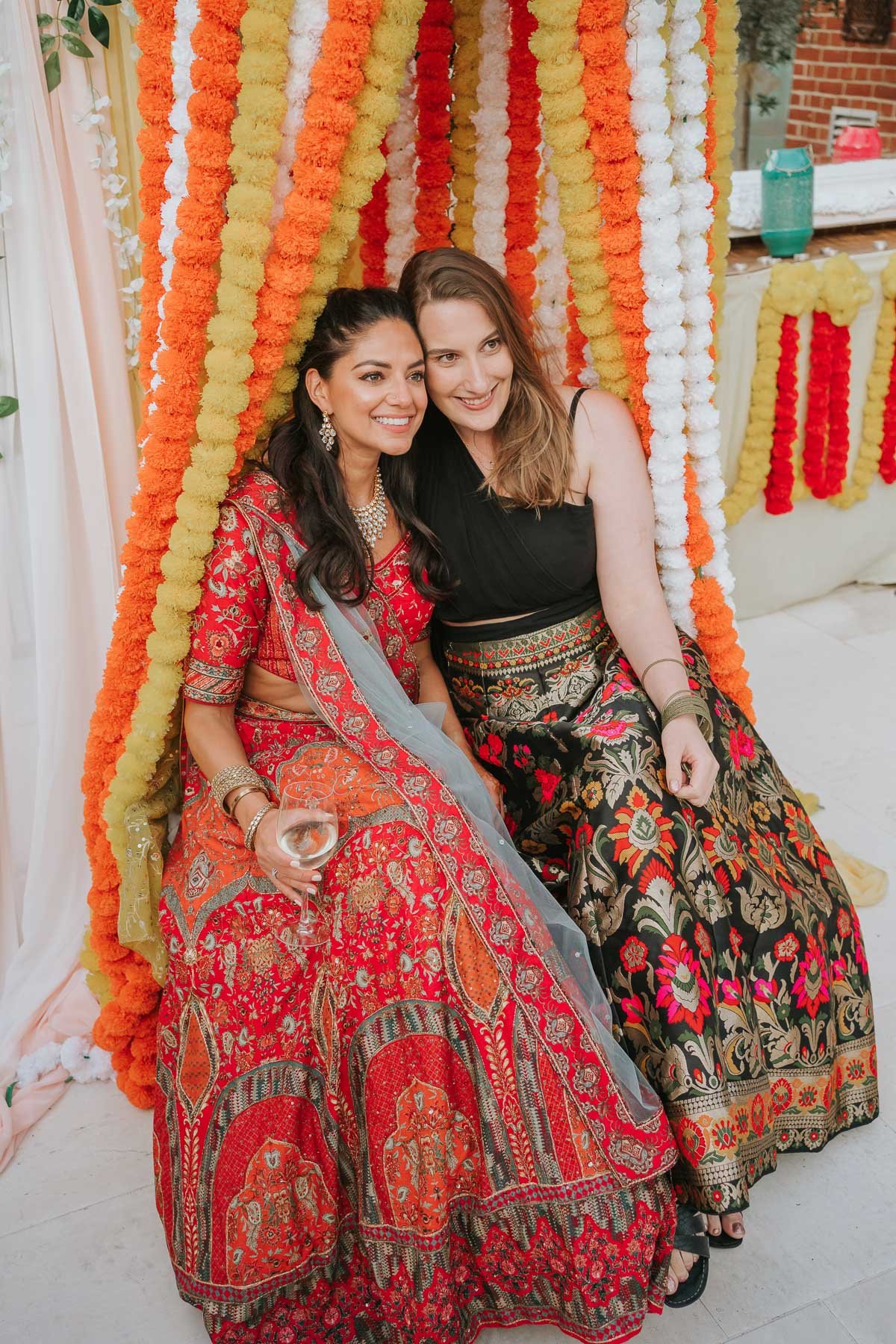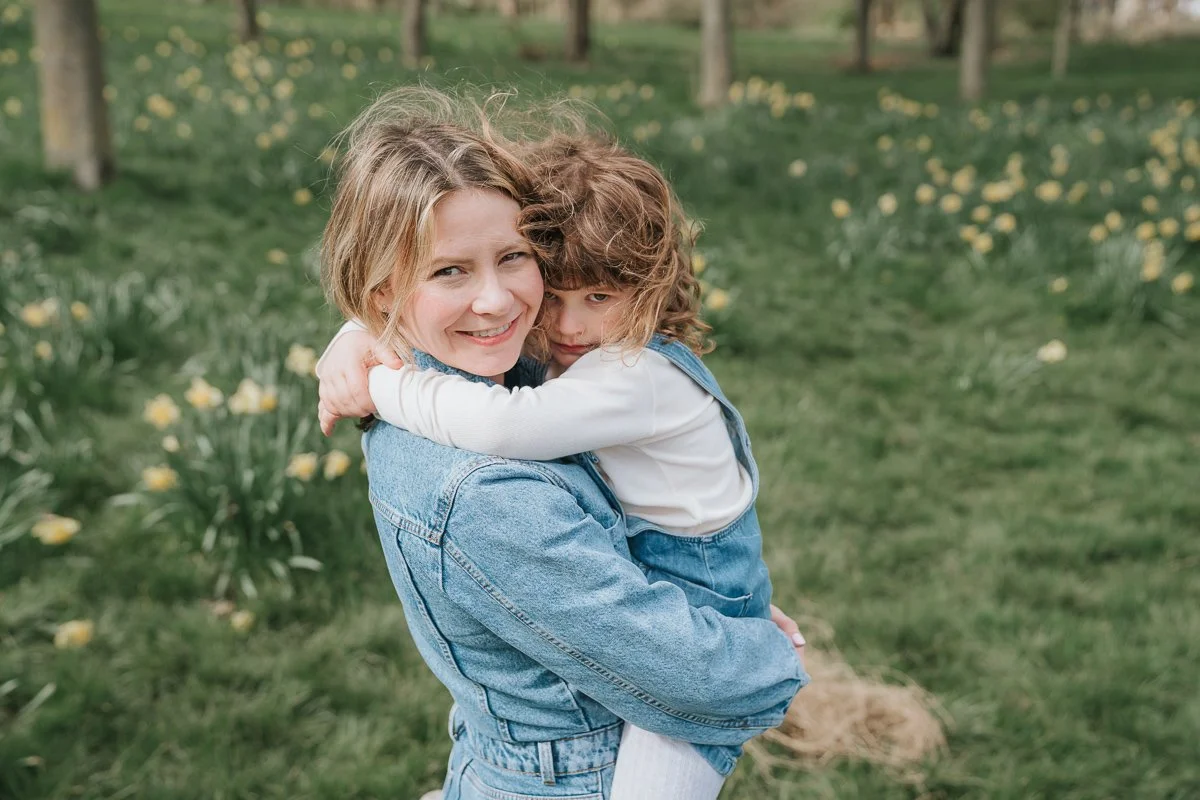A Mehndi party is a pre-wedding party for the bride and her closest female friends and family members. Centering around the application of the bridal mehndi, or henna design, to their hands and feet—it is one of the most colourful and festive celebrations in both Muslim and Hindu cultures.
As a London wedding photographer it was a dream come true to capture this colourful and joyous celebration.
The History and Meaning of the Mehndi Party
Mehndi, also known as henna, is a dye made from Lawsonia inermis, the henna plant. According the culture, mehndi also has medicinal properties. Its cooling properties provides relief from stress, fever, and headaches, so it is said to calm the bride’s nerves when applied to their hands and feet.
For thousands of years, mehndi has also been used as a form of body art. This is why the Mehndi party is often held the day before the wedding—to beautify and bless the bride before her big day. In Hindu tradition, mehndi is part of the sixteen bridal adornments, which is a ritual for the beautification of the bride from head to toe at the time of their wedding. Mehndi is also encouraged in the Muslim tradition as a hair dye or to beautify hands.
Apparently the darker the stain of the mehndi, the more love the bride will receive from their partner and in-laws. Brides were also told that they shouldn’t do any housework for as long as the stain lasts, which can be up to two to three weeks if natural henna is used.
What Happens at a Mehndi Party
A Mehndi party is a night of fun with lots of food, music, and dancing. Traditionally, the bride parents host the party. Intricate henna patterns are applied to the bride’s (and guests) hands and feet during the event. In modern times, the bride often opts to have a henna artist come to her home before the actual Mehndi party.
The event often starts with a grand entrance to drumming. Guests feed the soon-to-be couple all types of sweets. Brides and grooms perform choreographed dance performances with close family and friends that are often rehearsed for months. The dances are a form of friendly competition between both sides of the family. Women often sit on the ground in front of the couple singing songs and playing the dhol (a type of drum) surrounded by colorful throw pillows and decorations. Bhangra music is commonly played and the dancing can continue for several hours.
At Zara’s mehndi party her husband-to-be Jon also joined in the party. The tradition of the groom’s shoes being stolen for a fee on their return, was also incorporated into the celebrations.

